Australia’s top 180 farmers: Injemira Beef Genetics, Rennylea Angus, Lambpro
These farmers are the big players on one of our most important stages. Innovators, traditionalists, profiteers all.
This year marks the 10th anniversary of The Weekly Times Coles Farmer of the Year awards, which celebrate outstanding farmers across the nation in beef, cropping, dairy, horticulture, sheep and innovation.
With 18 finalists named each year, an impressive 180 producers have been honoured over the past decade for their focus on productivity, profitability, innovation and sustainability.
We take a look back at the complete list of 180 finalists and winners, who can safely be called Australia’s best.
BEEF
INJEMIRA BEEF GENETICS
Book Book, NSW
Winner 2021
Marc Greening runs a stud and commercial beef enterprise across five properties totalling more than 4000 hectares at Book Book, near Wagga Wagga, in southern NSW. As well as running one of the most successful beef studs in Australia – Injemira Beef Genetics – he turns off up to 3000 steers and heifers a year.
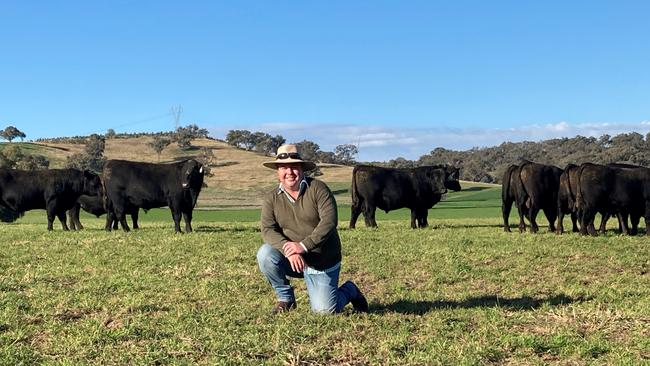
HAMILTON PARK WAGYU
Wallumbilla, QLD
Finalist 2021
The Maller family operate a large-scale Wagyu beef business across six properties totalling 40,000ha in three districts of Queensland. Traditional Hereford producers, they made switch to Wagyu in the late 1990s and in the past five years have almost double the size of their herd to 2500 cows.
JARRAH CATTLE COMPANY
Banana, QLD
Finalist 2021
The Beckers run a multi-pronged stud and commercial operation on 11,600ha, southeast of Rockhampton in Queensland. As well as selling genetics they turn off 1500 steers and heifers a year. The business is centred on meeting market specifications and produce highest quality carcass possible.
PARINGA LIVESTOCK
Murrindindi, VIC
Winner 2020
The Lawsons operate Paringa Livestock, a diverse stud beef business running about 550 Red Angus, black Angus, Charolais and red and black composite Stabilizer cows at Murrindindi, in Victoria’s North East, and at Clarkes Hill, near Ballarat. The business, with science and hybrid vigour as its centrepieces, sells 150-200 bulls a year to a growing client base seeking to produce born-to-perform calves that will return them a healthy premium.
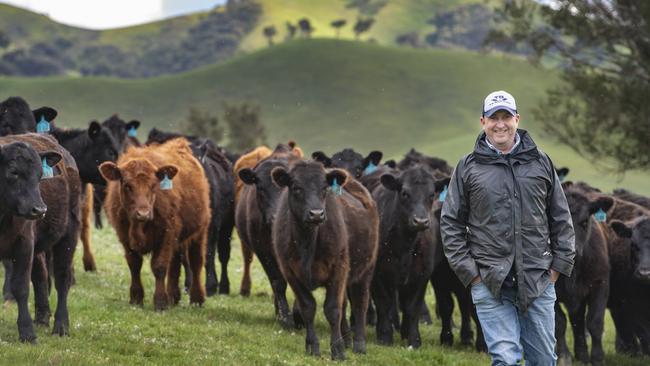
STARK FAMILY
Lake Mundi, VIC
Finalist 2020
The Stark family have farmed western Victoria’s border country since the late 1800s, but don’t for a second think they are bogged down by tradition. On 2500ha near Lake Mundi, between Casterton in Victoria’s Western District and Penola in South Australia’s South East, Kevin and Maryanne Stark, and their son Kevin Jr, 31, put profits front and centre as they work hard to produce a beef herd that matches the demands of today’s consumers.
TIM & ANNA WILSON
Labertouche, VIC
Finalist 2020
The Wilsons farm just 450ha, spread across three properties around Labertouche in Victoria’s Gippsland region, but what they lack in quantity they make up for with quality, running a powerhouse herd of 1100 purebred Angus cattle targeting the top-shelf beef market.
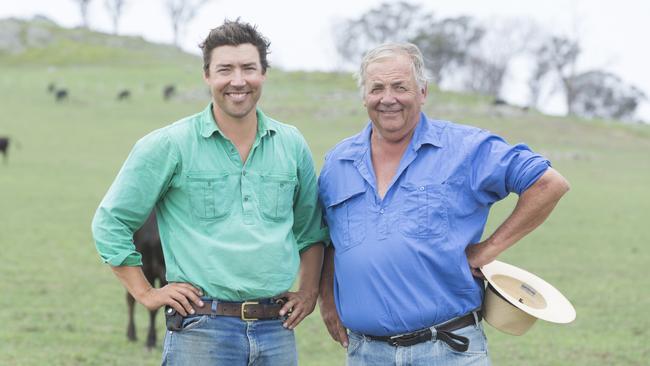
TRENT BRIDGE WAGYU
Aberfoyle, NSW
Winner 2019
They’ve seen drought, a bushfire and a jaw-dropping $200,000 single-cow sale in the past year. Impressively, Wal and Jen Perry, and their son Charlie, ride the highs and the lows with composure, never losing sight of their main game plan to produce high-marbling Wagyu cattle that tastes good on the consumer’s plate.
KOOLOMURT PASTORAL
Coleraine, VIC
Finalist 2019
One of Victoria’s best-known beef producers, John and Anne Wyld operate Koolomurt Pastoral from their home farm near Coleraine in the Western District. They have made their mark in the beef industry in recent times by successfully adapting to changing market conditions.
BARFOLD BEEF
Barfold, VIC
Finalist 2019
Matt Shea employed a clever strategy to expand his family’s beef operation in central Victoria. Instead of buying extra country, he opted to lease land and agist cattle, allowing him to invest in what counts – improving the quality of the herd.
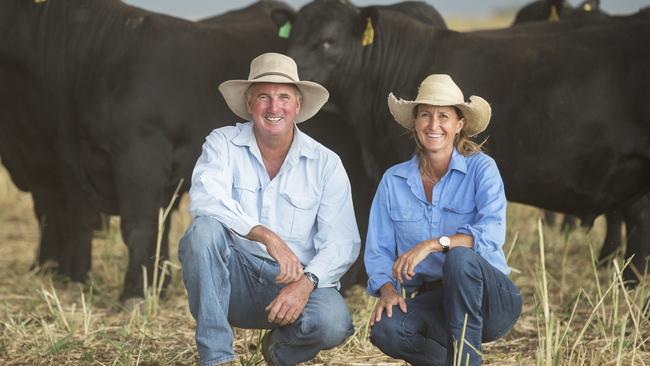
TEXAS ANGUS
Warialda, NSW
Winner 2018
Performance, even in the harshest of seasons, is the aim for the Mayne family, who run one of Australia’s most successful beef cattle studs. Despite experiencing the devastating effects of drought during 2018, Texas Angus – owned and operated by Ben and Wendy Mayne on 2105ha at Warialda in northern NSW – notched up one of its most successful years in 2018.
BEN AND JANE YOUNG
Macarthur, VIC
Finalist 2018
Superfood kale is not just a winner for health-obsessed hipsters – it was also the cattle feed of choice for leading beef producers Ben and Jane Young in 2018. The Youngs, from Macarthur in Victoria’s Western District, were using the novel crop to grow feed for their cattle during the cold winter months, when harsh conditions drastically slowed the growth of many traditional grasses.
MACQUARIE WAGYU
Leyburn, Queensland
Finalist 2018
Anthony and Chantal Winter managed a 8700ha Macquarie Wagyu operation at Leyburn in Queensland’s Southern Downs region, enjoying tremendous success by practising their special form of reverse psychology. Instead of looking at the business from the traditional paddock-to-plate perspective, the Winters did the opposite, with all breeding decisions centred on how a cow’s offspring, having been finished in an on-farm feedlot, ultimately stack up on the dinner plate.
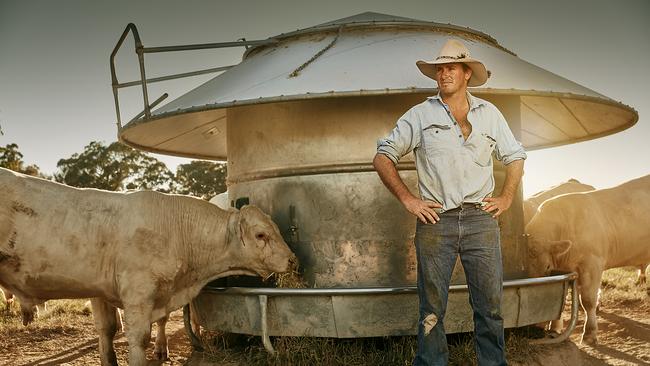
ROSEDALE CHAROLAIS
Blayney, NSW
Winner 2017
Forget about paddock to plate: the Millner family have the beef industry wrapped up from source to main course. The family, from central NSW, in 2017 were juggling running one of Australia’s biggest polled Charolais studs with a growing commercial enterprise and a paddock-to-plate brand that was feeding the growing Asian appetite for quality beef. The centrepiece of the operation, run across 6500ha in three districts at Blayney, Dubbo and Coonamble, was the Rosedale Charolais stud, founded in 1970.
JAC WAGYU
Bingara, NSW
Finalist 2017
When it comes to producing some of Australia’s best steaks, Jac Wagyu has stood the test of time. And the family-run operation from northern NSW has accolades to prove it. Founded in 2002, Jac Wagyu was run by Jason and Ann Lewis, and Jason’s parents John and Lynne, on their 2500ha farm on the banks of the Gwydir River near Bingara.
MINNAMURRA PASTORAL
Coolah, NSW
Finalist 2017
The Minnamurra Pastoral Company, founded by the Reid family in 1974, ran about 3500 predominantly Angus breeding cows across 118,510ha of owned and leased country over three districts in two states in 2017. But it was its foray into Speckle Park cattle, a breed native to the Canadian Saskatchewan province, that was turning heads and winning widespread industry acclaim.
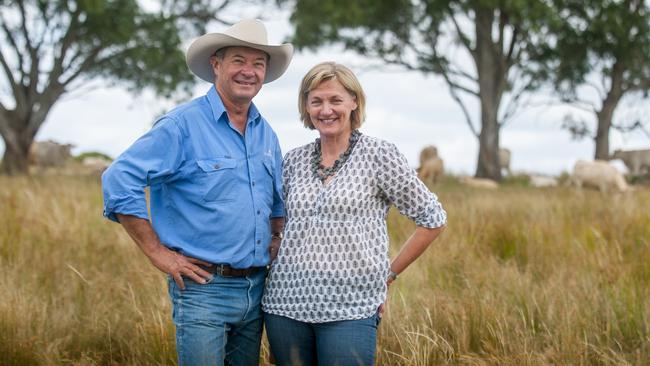
PALGROVE
Dalveen, QLD
Winner 2016
David and Prue Bondfield from their base in southern Queensland were running one of Australia’s leading stud beef operations spread across more than 10,500ha of land, five properties, in four districts and two states back in 2016. Operating on the notion that “information is the most powerful tool”, David and Prue’s Palgrove Charolais, Charbray and Ultrablack studs have attracted a loyal following from beef producers across the nation.
MAYURA WAGYU
Millicent, SA
Finalist 2016
Spread over 3000ha near Millicent, on the South Australian Limestone Coast, Mayura Station not only bred, fed and marketed its award-winning Wagyu beef — it served it up at its own on-farm restaurant. In fewer than 20 years, the de Bruin family had turned a casual conversation about the benefits of eating Wagyu beef into a multimillion-dollar vertically integrated farming operation.
SHAUN AND MARIA BEASLEY
Lindenow South, VIC
Finalist 2016
Shaun and Maria Beasley ran a mixed sheep and beef business on 2800 hectares at Lindenow South, near Bairnsdale in Victoria’s East Gippsland, where productivity and performance reigned supreme. Adhering to the mantra that “there’s no such thing as a free lunch”, the Beasleys positioned their finely tuned Angus beef herd and Merino and crossbred sheep flocks well for the future, operating on an impressive rate of return of at least 30 per cent.
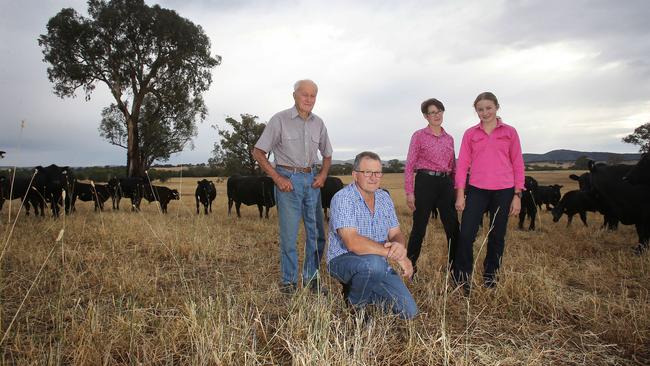
KILLALEA FAMILY
Holbrook, NSW
Winner 2015
The ability to turn off 500-600 heavy steers each year off just 400ha in a 700mm rainfall needs a careful formula and the Killalea family mastered it. Their property in the NSW Wantagong Valley, midway between Holbrook and Jingellic, picked up the 2015 Farmer of the Year title for its innovative approach to livestock management.
JULIAN AND SALLY CARROLL
Mudgegonga, VIC
Finalist 2015
Julian and Sally Carroll ran 50 Black Star Angus stud cows, and about 350 commercial breeders, on three properties they owned and leased at Mudgegonga, near Myrtleford, in Victoria’s North East. Following 20 years working off the farm, Julian brought his business acumen acquired in Melbourne and applied it to the cattle operation.
BRAD AND PHILIP GALE
Waratah Bay, VIC
Finalist 2015
Brad Gale and his father Philip operated a family partnership on 800ha at Waratah Bay, in South Gippsland. In 2015 they ran a self-replacing breeding herd of 550 cows and calves and the progeny are all grown out from 20 months to two years old. They also bought another 350 steers and heifers a year to fatten.
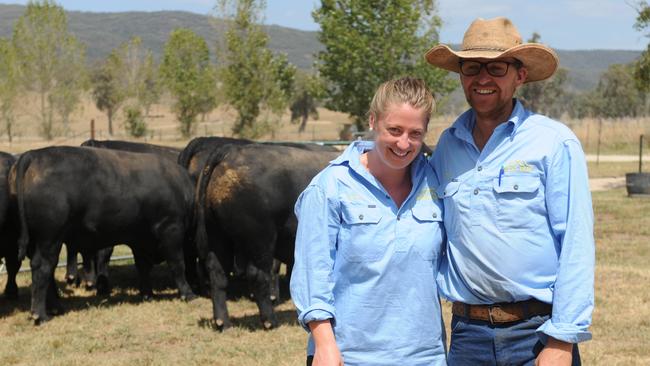
HICKS BEEF
Holbrook, NSW
Winner 2014
Andrew, Anne and Tom Hicks ran Hicks Beef, a 1000-cow stud herd and 400 commercials at Holbrook and Jingellic, in southern NSW. They were convinced from what they had seen that the composite cattle were the right breed for temperate Australia.
FIONA CONROY AND CAM NICHOLSON
St Leonards, VIC
Finalist 2014
Former The Weekly Times livestock editor Fiona Conroy and agronomist husband Cam Nicholson, operated the Knewleave Partnership farm near St Leonards, on Victoria’s Bellarine Peninsula. In 2014 in their 550mm rainfall area, they pushed production — turning out up to 350kg of beef per hectare and boasting a higher-than-normal stocking rate of 23-24 dry sheep equivalents — while keeping more than a close eye on the environment.
THE CASCADE PASTORAL
Tallangatta, VIC
Finalist 2014
Point to any cow in The Cascade herd and owner Michael McCormack could talk about its breeding for four generations back. Some of the 400 cows and heifers joined each year were artificially inseminated on the 730ha McCormack family property in the Tallangatta Valley of Victoria’s North East. The balance was joined to the small team of bulls in a split calving to maximise the use of these genetics.
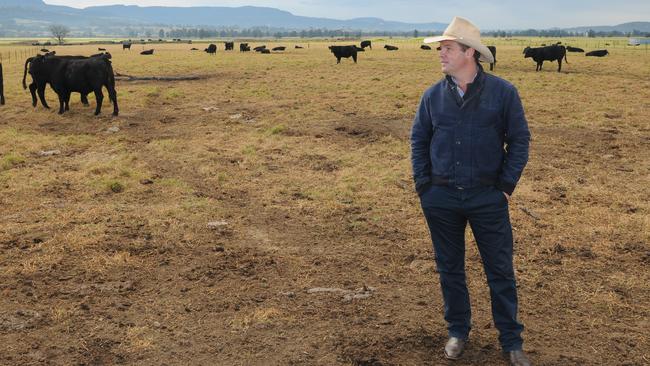
ARGYLE PRESTIGE MEATS
Harden, NSW
Winner 2013
Lachie and Andrina Graham supplied 1500 cattle and 10,000 lambs from their own boning operation to 100 supermarkets in Sydney, Melbourne, Adelaide, Canberra and Brisbane, as well as restaurants and direct to homes back in 2013. They also exported retail-ready packaged meat to Hong Kong.
NARWEENA STATION
Penshurst, VIC
Finalist 2013
In 2013 Narweena Station sold the largest line of weaner cattle offered on AuctionsPlus in Victoria, then a novel way to sell cattle. Owner George Crocombe was on a winner with a herd of 900 Angus and Angus-Hereford cows joined to Charolais bulls, running the 1100ha property in partnership with his cousin.
HAMMOND FARMS
Smithton, TAS
Finalist 2013
Since the Hammond brothers — Keith and John — moved to the fourth-generation family farm on Robbins Island in 1981 they had been upholding the mustering cattle tradition.
Keith and John — together with third brother Chauncey in Sydney — ran Robbins Island Wagyu, not only one of the leaders in their field for genetics, but also supplying high marble-rated beef to domestic and international markets.
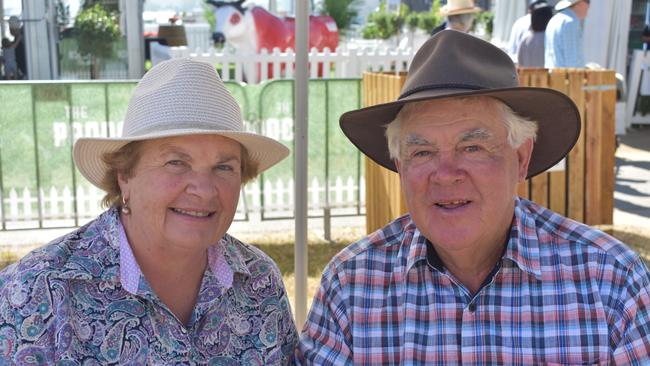
FRANK AND ANDIS SORRAGHAN
Ladysmith, NSW
Winner 2012
From 1961, Frank Sorraghan established several dairy farms in the Goulburn Valley, where he milked up to 1200 registered Holstein cows across four dairies. But, in the past two decades, the southern Riverina producer turned his hand to running two successful beef studs alongside his commercial operation.
LUCINDA AND BRYAN CORRIGAN
Bowna, NSW
Finalist 2012
Between 2010 and 2012, Angus breeders Bryan and Lucinda Corrigan sold a staggering 600 bulls for an average price of $7300. It’s the culmination of decades of hard work and they estimated up to 70,000 cows each year were joined to their Rennylea bulls.
CROPPING
KINGARA FARMS
Lock, SA
Finalist 2021
Farming across a 7000ha property on South Australia’s Eyre Peninsula, the Polkinghorne family (Tim, his partner Ellen Hardy, and his parents Andrew and Jenny Polkinghorne) maximise crop yields and profits by using technology to their advantage.
With their country varying from lighter, sandy soils to heavy clay loam, each area is treated differently. A combination of precision agriculture and a matrix of rotation is used to get the most out of each area of land, a formula that’s paid dividends for the family.
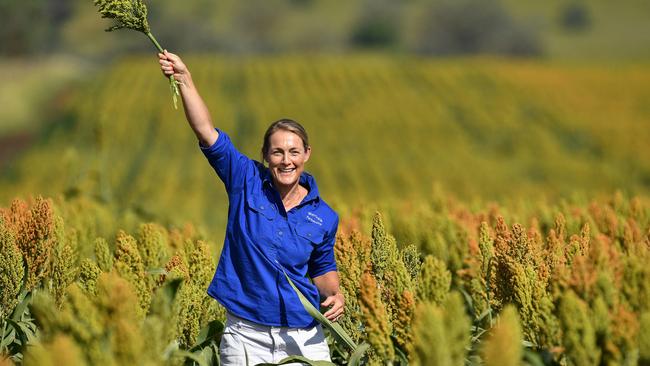
MERRIVALE PARTNERSHIP
Tambar Springs, NSW
Winner 2021
The brains behind the Merrivale Partnership, the Davidson family has developed a dryland-cropping enterprise with the flexibility to respond to a variety of seasonal constraints across the Liverpool Plains region of NSW. The family planted 5000ha of wheat and barley in 2020, and another 1500ha of sorghum.
BEN ERWIN
Bannockburn, VIC
Finalist 2021
Ben Erwin runs a large-scale cropping operation across 14 properties he either leases or sharefarms across western Victoria. Cropping about 1620ha of beans, canola, wheat, and barley each year, Ben sticks to rotations that fit each property and soil type, focusing on return
JARROD & EMMA AMERY
Forbes, NSW
Finalist 2020
At Forbes, NSW, the team behind Amery Ag just about doubled their crop yields compared to the long-term average back in 2020, the same time as Jarrod Amery was awarded a prestigious Nuffield Scholarship. Jarrod and Emma now manage more than 2400ha of cropping land across four properties, with wheat recently averaging 6.1 tonnes a hectare and canola almost three tonnes a hectare, the Amerys are certainly ones to watch in the future.
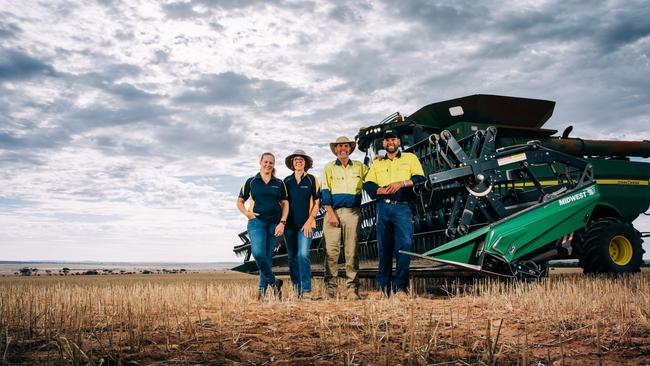
KARINYA AG
Buckleboo, SA
Winner 2020
For the Baldock family of Karinga Ag, South Australia, farming at the edge of a desert has proven to be a profitable choice. Tristan and Lisa Baldock, and Tristan’s parents, Graeme and Heather, farm at Buckleboo, in marginal farming country about 200km west of Port Augusta on the South Australian Eyre Peninsula. Here, near the rugged Gawler Ranges, days are hot, rain is scarce and plenty of hard work is required to make a farming operation not just survive, but thrive. The family’s strategy to cropping 6000 hectares in this environment is simple yet effective: make do with what, and if, the heavens deliver.
HAMILTON FAMILY
Inverleigh, VIC
Finalist 2020
A deliberate move by Stewart Hamilton to expand the family cropping operation at Inverleigh, Victoria, has paid dividends. One of the key decisions Stewart and his father, John, made was what to plant and they followed the philosophy of keeping it simple. With a combined cropping area of 2700 hectares, they made a radical decision to grow the same wheat and barley varieties on both properties. The 300km spread between their farms allows the variety to be sown on time in both regions (earlier in the Mallee and later in the Western District), something the Hamiltons found difficult when juggling multiple varieties on each farm.
PONTIFEX FARMING
Paskeville, SA
Finalist 2019
Grant and Ben Pontifex - both fifth generation farmers - run a 6800ha cropping business at Paskeville and Kangaroo Island, South Australia. Pontifex Farming now farms 2400 hectares of wheat, barley, lentils and chickpeas at Paskeville and 4400 hectares of canola, wheat, barley and broad beans on Kangaroo Island. The Pontifexes use state-of-the-art farming techniques to achieve yields above the district average.
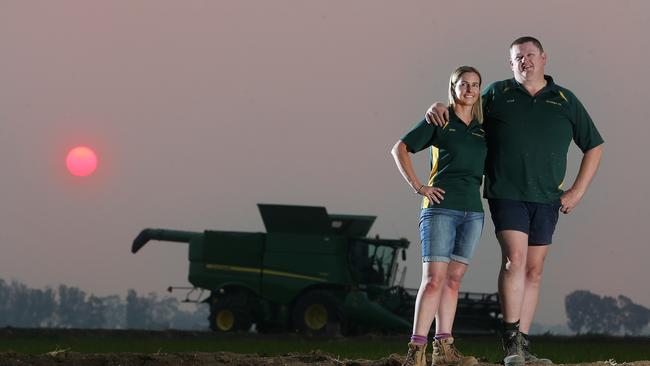
PETER AND RENEE BURKE
Jerilderie, NSW
Winner 2019
Peter and Renee Burke, hailing from Jerilderie in NSW, farm from just 1282ha, with only a handful of water entitlements, and managed to produce an impressive 6000 tonnes of grains, and 8000 bales of hay and straw in a 12-month period. Instead of buying permanent water, the Burkes lease it. This insulated their business from poor water allocations in the Murray Valley during the recent drought years, a technique which saw them awarded title of overall 2019 Farmer of the Year.
AG SCHILLING & CO
Cunliffe, SA
Finalist 2019
There are not many farmers who can sit down at the end of a long, hot day and crack open a beer knowing it’s been produced from the very paddocks in which they’ve been working.
But, then again, Mark and Merridee Schilling aren’t your run-of-the-mill farmers. The couple, who has built a successful cropping, seed cleaning and machinery import business over 2000ha at Cunliffe on South Australia’s Yorke Peninsula during the past three decades, say a thirst for maximum market exposure prompted them to add a paddock-to-pint element — the Yorke Premium beer label — to the diverse mix late last year.
BLOMELEY FAMILY
Pura Pura, VIC
Finalist 2018
Going for growth — using the practical skills inherited from his mechanically-minded dad — has placed Nathan Blomeley among Australia’s best farmers at the tender age of 27.
Nathan’s relentless hunger to do things better has seen him grow his family farm threefold within just four years. Not an easy feat, especially during challenging seasons and without a big chequebook behind him. The Blomeley family farm is in Victoria’s Western District, near the tiny hamlet of Pura Pura, where Nathan and wife Jessica, their son Riley, 2, and parents Tim and Danielle run a mixed cropping business, comprising wheat, canola and beans, and livestock. Since 2014, the Blomeleys have tripled their farm size to 1209 hectares through a clever mix of buying and leasing land.
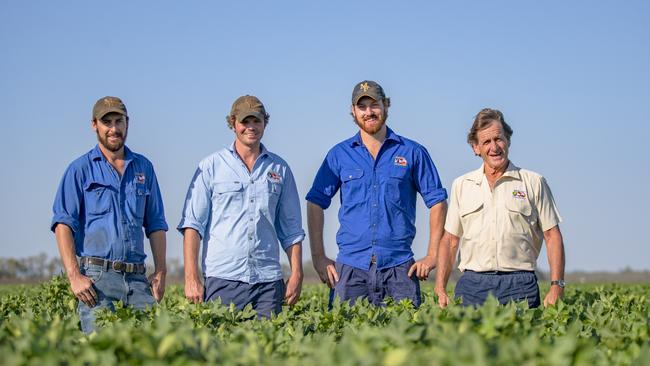
MERCED FARMING
Wee Waa, NSW
Winner 2018
This farming success story began in the 1960s when Paul Kahl took a gamble and relocated his family more than 12,000 kilometres from their home in California to Wee Waa, NSW, in an effort to farm with more freedom. It’s a move that proved more than successful, with the family now operating seven properties totalling 7500 hectares. The Kahls grow cotton as their primary crop as well as wheat, corn and mung beans.
CHRIS REICHSTEIN
Esperance, WA
Finalist 2018
Farming on his own since 1993, the late Chris Reichstein experienced floods, fire and frost on his 4600ha property in the medium rainfall Esperance district of Western Australia. In those 25 years, he honed his practices using best management techniques to the stage where the farm was considered one of the top producers in the region. Sadly Chris passed away in 2021. Before his death he created the Mt Burdett Foundation, a charitable organisation that would use the profits from his farm to fund community projects and invest in regional people.
WILL & MARGARET CARMODY
Cascade, WA
Finalist 2017
Will and Margaret Carmody’s farming success story was an inspiring one of rags to riches.
The Carmodys grow about 4650 hectares of canola, wheat and barley at Cascade, about 800km southwest of Perth near Esperance, in Western Australia — one of the last areas in the nation to be opened up for large-scale farmland development. They finetuned their management practices in an effort to get the most out of their high-rainfall, sandy soil country. Pioneers of new cropping technologies, the Carmodys were among the first in their district to adopt no-till farming practices to counter erosion and maximise soil moisture following severe droughts in the 1980s.
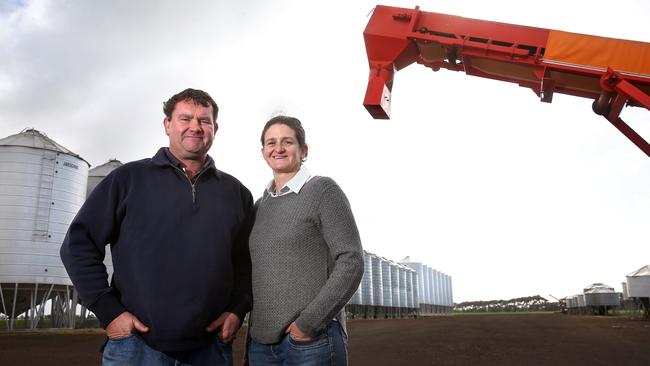
HINKLEY FARMING
Derrinallum, VIC
Winner 2017
Cropping farmers Matthew and Rachel Hinkley from Derrinallum in Victoria’s Western District grew just 1460 hectares of wheat, canola and barley in 2017, but it was what they were achieving with efficiency, yields and profits that stood them head and shoulders above their peers. The former agronomists brought new skills and ideas to farming, and in just 13 years increased the size of their operation by 400 per cent, lifted returns on assets to 10 per cent and pushed yields to rival the best in the land.
SMART GROUP
Keith, SA
Finalist 2017
At Keith, in South Australia’s South East, innovative brothers Damien and Ryan Smart were honoured for their dynamic winter cropping, lucerne seed and livestock business, Smart Group — which was founded by their parents Brendon and Robyn more than 40 years ago. It had grown to cover more than 5000ha in three districts and employ four full-time and two casual staff, as well as additional labour during harvest.
BULLA BURRA
Alawoona, SA
Finalist 2016
South Australian Mallee cropping farmers John Gladigau and Robin Schaefer joined forces in 2009 to form a single farming business to increase scale and efficiencies. The pair established a business, Bulla Burra, which leased the Gladigau and Schaefer farms — both 2000 hectares. In 2016 Bulla Burra grew 11,000 hectares of crops, employed six full-time staff, used advanced farming practices and had pioneered legume production in the marginal northern Mallee.
BUNGULLA FARMING
Tammin, WA
Finalist 2016
Through a targeted approach aimed at maximising technology and science, Brad Jones and Kate Raston achieved a mind-blowing 15 per cent return on investment for their 11,000ha of wheat, barley, canola, field peas, and export hay at Kate’s family farm at Tammin, Western Australia. Not a bad feat when you consider the average West Australian grain farm achieves an ROI of 4.3 per cent and the top 25 per cent of farms 8.3 per cent.
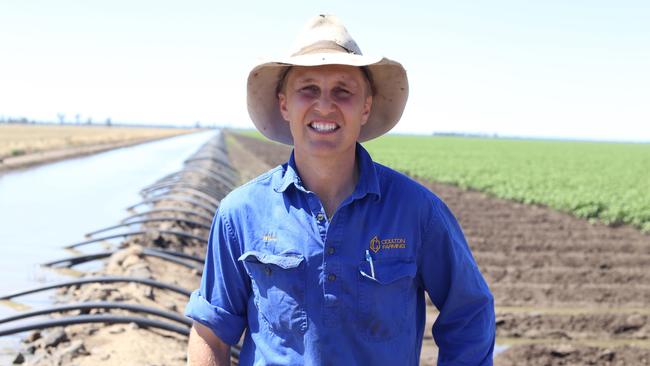
COULTON FARMING
Boggabilla, NSW
Winner 2016
Will Coulton, along with his wife Trudi and parents Ben and Prue, run Coulton Farming across more than 14,000ha at Boggabilla and North Star in northern NSW. The family made their mark using only the best in machinery, crop varieties and infrastructure to increase productivity, while reducing costs. The Coultons in 2016 ran about 6070 hectares of winter crops, including chick peas, wheat and barley, and 2024 hectares of summer crop, consisting of cotton and sorghum, alongside about 600 Angus cows.
CALUM PEACE
Piangil, VIC
Finalist 2015
In 2010, Calum Peace planted a dryland wheat crop on 450ha the Peace family had been sharefarming, but it was the purchase of a 600ha, derelict dairy farm next door in 2011 that saw opportunities to sow more than double summer and winter crops. The property, which in 2015 covered 1500ha abutting the Murray River town northwest of Swan Hill, started off in the Peace family as a 150ha block. From there grew Andrew Peace Wines, which produced 25 million litres of wine a year and had 70 full-time staff on its books.
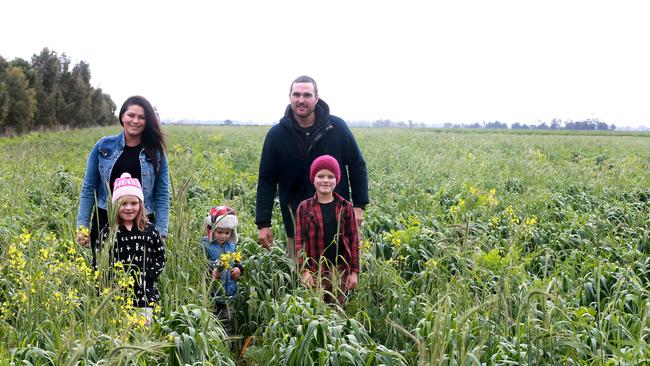
GRANT & NAOMI SIMS
Pine Grove, VIC
Winner 2015
Northern Victorian cropping farmers Grant and Naomi Sims run sixth–generation Sims Pastoral business at Pine Grove, Victoria: a cereal, legume and oilseed cropping operation.
Their drive and passion helped transform their enterprise into an ultra-modern no-till controlled traffic system. Grant eliminated the use of fungicides to create a more natural soil base, moved to liquid fertiliser, which led to the plants becoming more robust, and introduced cover and companion crops including tillage radish, cereal rye and field peas
CHRIS & GERALD DRUM
Banyena, VIC
Finalist 2015
The Drum family runs a continuous cropping operation at Banyena, in Victoria’s Wimmera region. Changes Chris and his brother, Gerald, made after the millennium drought meant they could produce yields above what they used to in a dry year. The brothers switched to a zero-till and controlled traffic farming system after seeing the results being achieved by several other innovative farmers in the area.
EG BAKER & CO
Rutherglen, VIC
Finalist 2014
Andrew, Jason and Ken operate Rutherglen’s EG Baker and Co, which produces high-quality seeds for crop production, grain and cattle. Their entire focus was to make the crops as close to perfect as possible. Run like a corporation but owned by a family, the 2450ha swathe of land near Rutherglen in the North East produced high-quality seeds for croppers, grain as a commodity and cattle.
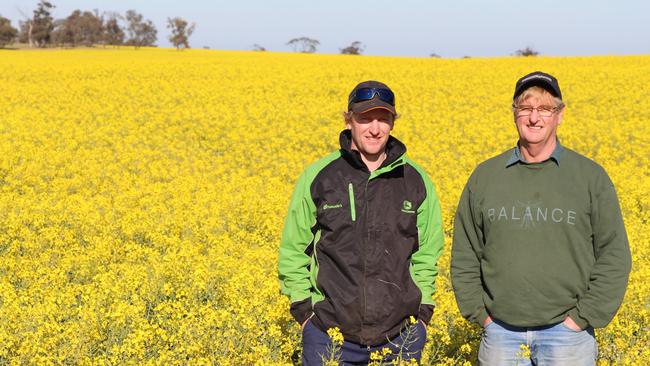
BIBBY FAMILY
Berriwillock, VIC
Winner 2014
Garry Bibby’s cropping and cattle operation at Berriwillock, in Victoria’s Mallee, was honoured for making the switch to a no till, high technology, precision agricultural business that planted 5000ha of crops in 2014. Garry runs the business with wife Kate, sons Karl and Anthony, Anthony’s wife, Rachel, and three full-time employees.
JOHN & SARAH BRUCE
Barooga, NSW
Finalist 2014
John and Sarah, from Barooga in southern NSW, believed livestock offers a vital source of income, a return on stubble crops and better use of labour. By running lambs on crops they generated up to $370 per tonne in grazing value alone, on top of impressive yields at harvest.
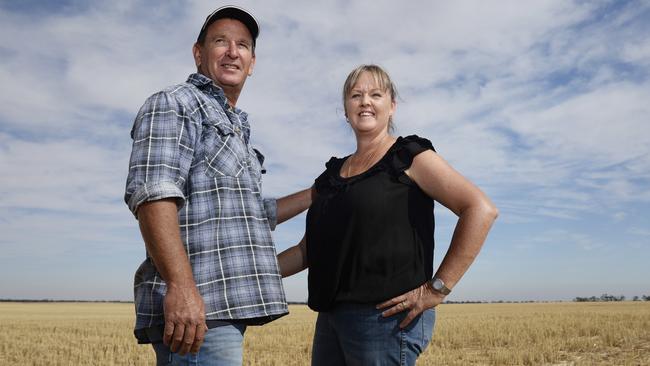
TONY & CINDY FOX
Swan Hill, VIC
Winner 2013
Tony Fox is the fourth-generation farmer to work his wheat, barley, canola and field pea property at Goschen. The Foxes were quick to adopt modern farming techniques, equipment and science. Tony said the greatest motivator for change on the farm was soil drift and erosion, which saw them move from tilling to direct drilling.
PHIL CRABTREE
Goroke, VIC
Finalist 2013
Phil Crabtree from western Victoria’s Wimmera benefited from a move to early application of urea fertiliser, which boosted yields and increased profitability on his 1400 hectares of cropping land west of Goroke. Phil’s change in routine resulted in increased cereal crop yields of up to five tonnes a hectare and his wheat made top grades even in dry years when protein levels were low.
GEORGE & MEL HAYLOCK
Nimmitabel, NSW
Finalist 2013
third-generation farmer George originally saw cropping as an ideal opportunity to improve his family’s 3237ha by cleaning up unwanted weeds and providing good feed for the existing Merino wool operation. But in a surprise to most - himself included - it went on to be a key contributor to the business’s bottom line. The Haylock farm, Old Springfield, was run as a partnership with the cropping venture complementing the family’s Merino operation, which produced about 300 bales of 19-20.5-micron wool from 4100 ewes and 3000 wethers in 2013.
GODDE FAMILY
Culcairn, NSW
Finalist 2012
Diversification and timing were the key components in the Goddes’ successful cropping operation, run by brothers Andrew and Paul Godde, and their wives, Michelle and Catherine.
The Goddes were sticklers for detail, sowing on time, and fertilising and spraying with precision for consistent results year in, year out. In 2012, the Goddes grew genetically modified canola for the first time, primarily to help with ryegrass control.
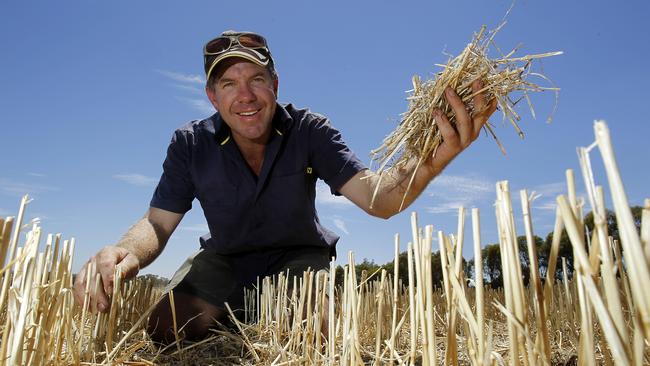
TREVETHAN FAMILY
Howlong, NSW
Winner 2012
The Trevethans in 2012 harvested 700 hectares of wheat and 700 hectares of canola across 1950 hectares at Howlong 30km northwest of Albury in the Riverina. That year, Ian Trevethan, father Paul and brother Tim had their first go at direct heading canola, and believed it yielded an additional 10 per cent canola, or an extra $100 a hectare on the previous year’s prices.
SHEPPARD FAMILY
Coleambally, NSW
Finalist 2012
Andrew Shepherd, a fourth-generation farmer, says his great-grandfather was “actually the bloke who invented the Shepherd Super Broadcaster in 1927”.
The Shepherd family is still heavily involved in the pastoral industry, with Andrew, his wife, Deanna, and sons Jake and Sid farming 728ha, and leasing a further 125ha in Kybybolite, on the Victorian border in South Australia. The family run 1200 first-cross ewes for prime lambs.
DAIRY
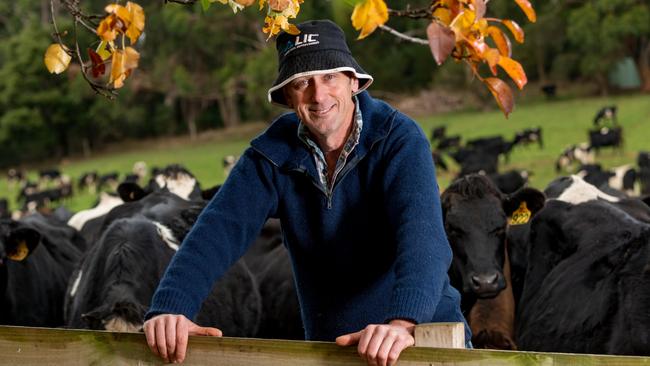
FRAMPTON FAMILY
Gawler, TAS
Winner 2021
A focus on waste mitigation and sustainability has had a profound result for dairy farmer Rob Frampton at Gawler, Tasmania, whereby production and profits have significantly increased.
Rob created a detailed plan to minimise the use of everything from fertilisers and chemicals to water, labour and power and the low-cost, low-emissions strategy has proven highly profitable.
GARDNER FAMILY
Tunbridge, TAS
Finalist 2021
Feeding seaweed to dairy cows and swapping to milking just once a day are two management strategies paying dividends for the Gardner family at Tunbridge, Tasmania. Richard and Emily Gardner, who run a 1250-cow operation in a non-traditional dairy region, embrace change, productivity and sustainability in every move they make.
RUSSELL FAMILY
Bega, NSW
Finalist 2021
Rob and Pip Russell, and their son Will, are focused on improving pasture quality on their Bega Valley dairy farm in NSW, and have tweaked species grown, the timing of planting and fertilising, and re-fenced 60 hectares to grow more tonnes of every crop they put in the ground. Their high-tech approach has allowed them to expand the herd from 300 to 350 cows, with a goal of 400, ensuring the operation will be in good shape for generations to come.
GLEN EDEN HOLSTEINS
Muswellbrook, NSW
Finalist 2020
When the Raphael family from Muswellbrook in the NSW Hunter Valley, set the ambitious goal of their Holstein herd producing 10 million litres of milk off grass, few could be forgiven for thinking that, to achieve this, a significant increase in fertiliser applications would be needed. But the Raphael’s did the opposite – in fact they cut back their use of urea to a third of their normal application rate - and not only is their herd healthier and more fertile, but their country grows just as much grass as ever.
GLOWREY FAMILY
Swan Hill, VIC
Finalist 2020
From little things, big things have grown for the Glowrey family of dairy farmers in Victoria’s marginal Mallee farming district.
Originally starting out in the 1950s with 12 cows on 100 hectares and supplying milk to a Greek cafe in Swan Hill, the Glowreys have built a powerhouse business that now milks up to 1900 cows on 570 hectares.
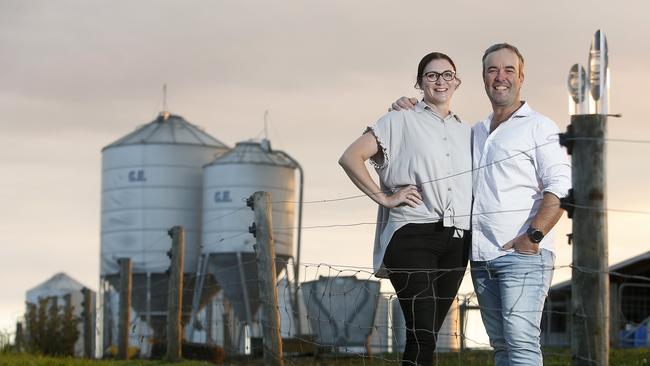
MATT & ALLI REID
Carlisle River, VIC
Winner 2020
Matt and Alli Reid, from Carlisle River, near Colac, run a finely tuned dairy operation milking 675 cows on 650ha. Since relocating to southwest Victoria from the drought-ravaged irrigation districts of northern Victoria less than 20 years ago, the Reid’s have more than doubled the size of their business, switched from supplying the global to domestic fresh milk market to reduce risks associated with fluctuating prices and lifted annual returns on assets to almost 10 per cent — nearly double the average of local herds.
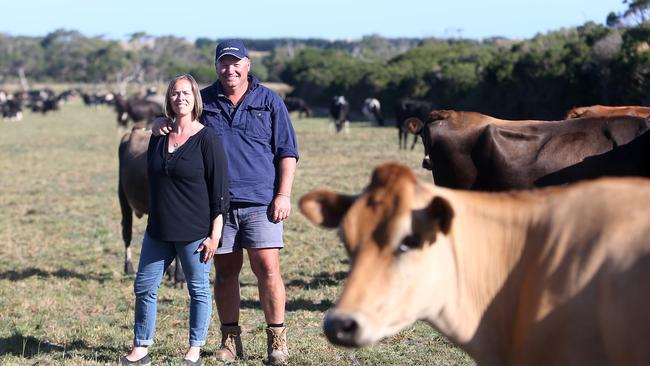
MICK & PAULA HUGHES
Inverloch, VIC
Winner 2019
For the average morning-and-night dairy farmer, the prospect of a once-a-day milking sounds like agricultural bliss but for Mick and Paula Hughes, the move to once-a-day milking was a brave leap and one that has ultimately paid off.
The single sessions in the dairy pit have allowed the Hughes to kick numerical goals, with their cost of production as low as $2.60/kg of milk solids.
FLEURIEU MILK COMPANY
Myponga, SA
Finalist 2019
Figures alone illustrate the success of Fleurieu Milk Company. In the space of a couple of years, staff numbers at the family-run dairy farm and milk processing company have increased nearly fourfold, from 15 to 52, while the company – owned by three dairy farmers in the South Australian town of Myponga – has recently completed a $1.2 million upgrade, allowing it to process more than twice as much milk per hour, and package it on-site with a new $260,000 bottling machine.
KEELY FAMILY
Cohuna, VIC
Finalist 2019
Balancing water availability with his pasture production needs is an important consideration for dairy farmer John Keely, and the reason he has been able to keep numbers steady and continue producing quality milk, even in a dry year. John, a Nuffield scholar, runs the family’s 423-hectare dairy enterprise at Cohuna in northern Victoria, with wife Michelle, father Des and son Harrison, milking about 310 mostly Holstein cows.
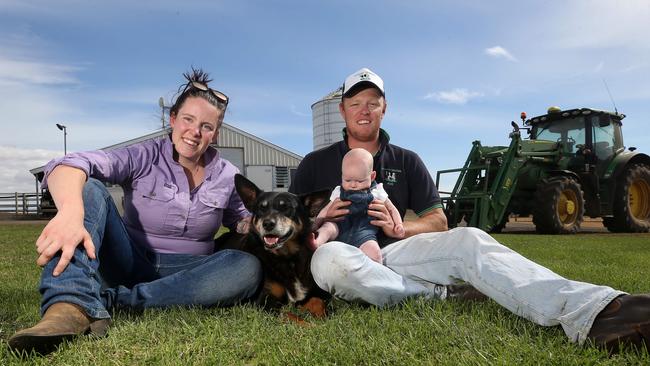
CLINT THEODORE & BROOKE LANE
Alvie, VIC
Winner 2018
What Clint Theodore and Brooke Lane might lack in years, they certainly make up for in innovation, determination and success, and it’s the latter, in particular, that is fast making the sharefarmers the envy of many of their contemporaries. Through a scientific and economic approach, one that puts herd health and costs front and centre, Clint, 32, and Brooke, 23, were able to achieve a massive return on equity of more than 12 per cent in recent years with their herd of 300 Holstein cows.
SCOTT & BELINDA MCKILLOP
Dederang, VIC
Finalist 2018
Sustainability equals profitability for Scott and Belinda McKillop who run 360 Holsteins, each producing 8200-8300 litres annually, on 200 hectares at Dederang in Victoria’s North East.
The McKillops were one of four farming families to form Australia’s newest co-operative – Mountain Milk Co-operative – with the aim of taking back control of their milk from processors and extracting the best-possible price for their product.
LUKE & STACEY MADDEN
Naringal East, VIC
Finalist 2018
Luke and Stacey Madden, from Naringal East in southwest Victoria, found success producing milk for the cheapest-possible price, through a tried-and-true recipe of growing as much feed for their herd as they can themselves and doing the bulk of the work. Honing in on strengths, and not being afraid to seek outside help, paid dividends for the Maddens, whose path to farm ownership did not chart the common industry course.
WES & RITA HURRELL
Torrens Vale, SA
Finalist 2017
Wes and Rita Hurrell from Torrens Vale, on the Fleurieu Peninsula in South Australia transformed their dairy business in line with changing climates. It is a feat that saw them command prices more than 20 per cent above the state average.
ELLERBY DAIRY
Ellangowan, QLD
Finalist 2017
Rachael Parkes and her husband, Ged Mullins, in 2017 were running Queensland’s biggest dairy, Ellerby Dairy, at Ellangowan, on the highly fertile Darling Downs south of Toowoomba. Established in 2009, Ellerby Dairy milked 850 Holstein and Brown Swiss cows three times a day producing seven million litres of milk a year for Lion’s Dairy Farmers label.
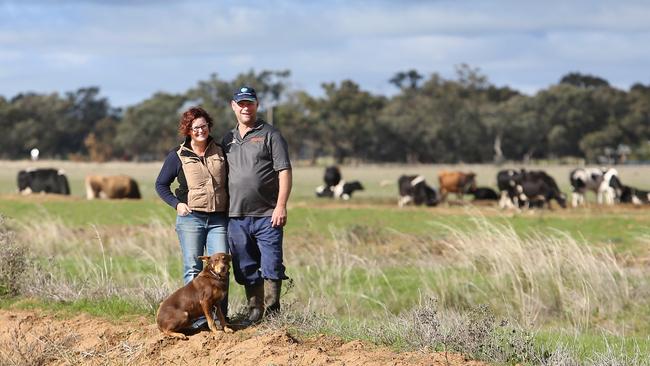
DEHNE & SARAH VINNICOMBE
Calivil, VIC
Finalist 2017
Dairy farmers Dehne and Sarah Vinnicombe, from Calivil in northern Victoria, knew all too well the uncertainties Mother Nature and the industry offer with drought, high water costs, crippling feed prices and wildly fluctuating farmgate returns – they have seen it all during their farming career. To counter this, and get the most out of their herd of up to 500 milking cows, they adhered to two key directives: not buying water and feed when industry demand was at a premium, and using all markets to the best of their abilities.
LEIGH VERHEY & ANGELA TURNER
Koondrook, VIC
Finalist 2016
Numbers had to stack up for Leigh Verhey and partner Angela Turner who milked 350 cows on their property at Koondrook in northern Victoria in 2016. Their mathematical approach, combined with water efficiency, produced a return on assets for the previous five years average of 6.25 per cent with the herd producing up to 520kg of milk solids annually over the previous four years and on track to hit 550kg, well above the regional average.
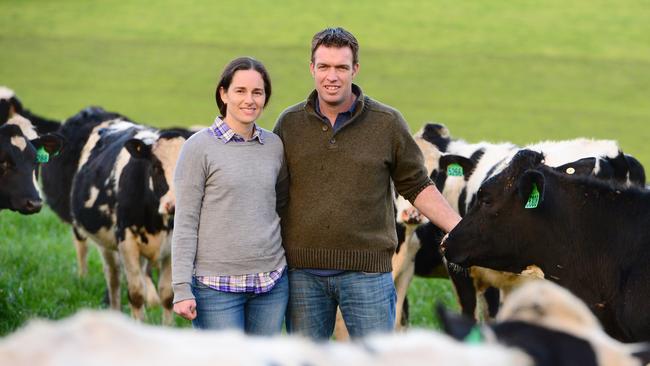
SIMON & LAUREN FINGER
Darnum, VIC
Winner 2016
Simon and Lauren Finger referred to themselves as “margin farmers rather than dairy farmers” and made the most of every opportunity by adapting to changing environments. In an effort to curb labour management, improve cow welfare and slash running costs – such as electricity – they switched from milking twice a day to milking the herd just once a day, which besides providing lifestyle benefits, the Fingers said earned them just $10,000 less than they would have had they been milking twice a day, which they considered “as good as even”.
ANDREW & KAY CAVILL
Bool Lagoon, SA
Finalist 2016
Dairy sharefarmers Andrew and Kay Cavill from Bool Lagoon, in South Australia’s South East, took a novel approach to feed, aiming to grow the cheapest and most efficient form of cattle feed for their 600-cow herd. After travelling to New Zealand to see how fodder beets were grown, Andrew planted 35 hectares, which yielded a staggering 35-40 tonnes/ha with a production cost of about 6c/kg - significantly cheaper than grain, which costs about 33c/kg.
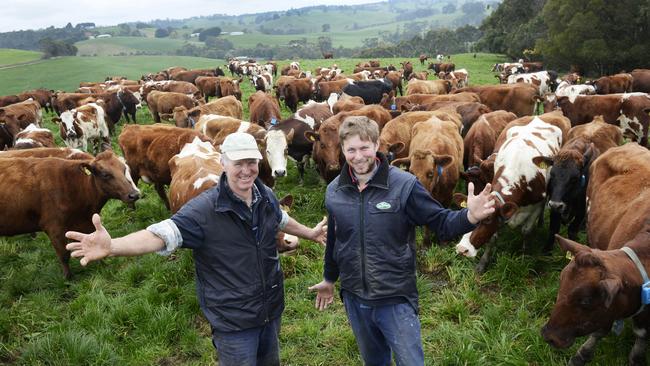
LEPPIN FAMILY
Bena, VIC
Winner 2015
Toby and Lyn Leppin and their son, Nick, milked up to 400 Aussie Red cows on 140 hectares at Bena in Gippsland and to make the most from their limited milking area they measured everything from soil nutrients, to pasture consumption, milk production and cost of production to ensure their operation is at the top of the game. In 2014 they produced 1564kg of milk solids a hectare with a below-district cost of production of $3.81 a kilogram of milk solids.
LEIGH & KELLIE SCHUURING
Smithton, Tas
Finalist 2015
Leigh and Kellie Schuuring were one of the dairy industry’s real success stories in 2015, coming from virtually nowhere to build one of Tasmania’s most acclaimed dairy herds, milking 1000 cows. The Schuurings both worked their way up through the industry from farm hands, and their story of building a business, without any backing, is what Leigh spoke about to Smithton High students as part of the Cows Create Careers program where he tried to bust the myth that being a dairy farmer was just putting cups on cows.
DAVE & VANESSA BARRY
Labertouche, VIC
Finalist 2015
The unreliability of Mother Nature to provide consistent autumn breaks prompted west Gippsland dairy farmers Dave and Vanessa Barry to “be proactive and make our own autumn break” at their Labertouche property. The Barrys used chicory to do that, each year planting 65 hectares of it to protect the perennial ryegrasses throughout late summer and early autumn, and also ensure their Holstein herd had a feed wedge in front of them going into winter.
SIMON & KATIE GLEESON
Brucknell, VIC
Finalist 2014
Simon and Katie Gleeson, from Brucknell in southwest Victoria, run Bilyana Grazing, which was enjoying considerable success in taking the responsibility of heifer rearing - a key to any dairy operation - out of the hands of farmers. At Bilyana, heifers were brought in as calves after being weaned, are grown out, joined and returned to farmers 20 months later ready to be milked and business is booming with throughput growing from 84 heifers a decade ago to 2400.
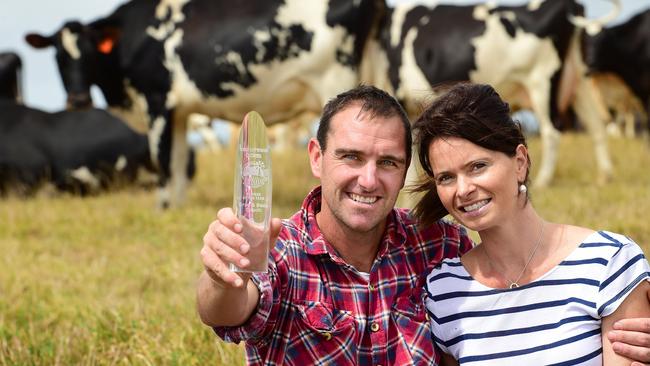
BRAD & BECC COUCH
Brucknell, VIC
Winner 2014
Brad and Becc Couch’s approach to dairy farming was simple yet extremely effective, and it positioned the couple at the top of their game in a region hit by fluctuating farmgate milk prices back in 2014. The couple was milking 360 cows on their 243-hectare farm at Brucknell, near Timboon in southwest Victoria, and kept a tight rein on costs.
AARON & VANESSA THOMAS
Binginwarri, VIC
Finalist 2014
Grass is king for producing the cheapest form of milk, according to Aaron and Vanessa Thomas who sharefarmed at Binginwarri in South Gippsland, milking 180 Jersey cows on 94 hectares. The herd produced an average of 1.89 kilograms of milk solids per cow per day with an impressive net profit of $7 per cow per day after feed costs are deducted.
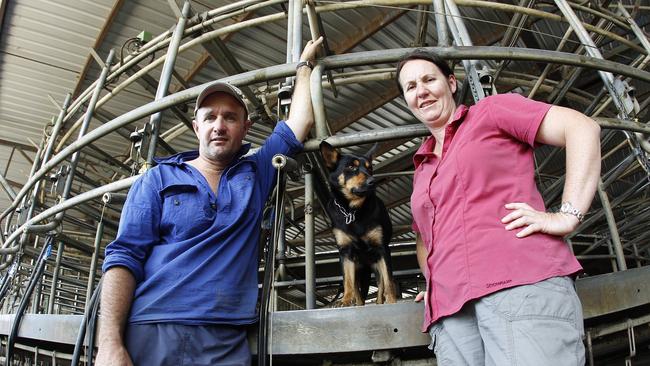
MARK & NARELLE MCDONALD
Tallandoon, VIC
Winner 2013
A willingness to be open to advice, work with others to grow their business and continue to strive to improve has seen Mark and Narelle McDonald, from Tallandoon in the Mitta Mitta Valley, grow their herd from 180 cows to 500 within a decade. The McDonalds attributed their success to being a focus farm for research organisation Murray Dairy which involved two open days a year where as many as 70 people visit the farm to pore over their books and wander through the paddocks, offering advice to help the McDonalds achieve their goals of increased cash flow, debt reduction, asset growth, more staff and a better lifestyle.
MARK & LYNNE PETERSON
Nathalia, VIC
Finalist 2013
Scoffed at by some for its alternative methods, biodynamic farming gave Mark and Lynne Peterson’s dairy farm at Nathalia an edge that saw their milk command a whopping 70c a litre, about twice the normal farmgate price, selling to top-end cafes and judged No. 1 in a statewide blind milk taste test. Mark, a third-generation dairy farmer, and Lynne ran 150 Jersey-Friesian cows producing 750,000 litres of milk a year on 180 hectares.
MALCOLM HOLM & JENNIFER WHEELER
Finley, NSW
Finalist 2013
Malcolm Holm and Jennifer Wheeler ran about 650 Friesian and Friesian-Jersey cows on their 580-hectare property near Finley in 2013. Numbers were reduced to 450 during the drought, when the district lost much of its productivity and all of its water. Annual production was about 7500 litres a cow with the operation producing 4.5 million litres of milk - or 320,000kg of milk solids - in 2013. Malcolm said the drought had taught him plenty about how to feed cows, and helped them develop a business that could not only survive prolonged dry conditions, but flourish.
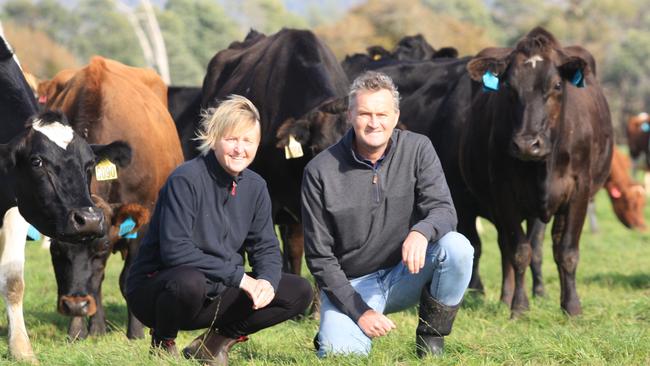
GRANT & KIM ARCHER
Mella, TAS
Winner 2012
Tasmanian dairy farmers Grant and Kim Archer knew keeping costs low was paramount in dairy and after 25 years in the industry, Grant had it down to a fine art. The Archers had three dairy businesses and in the 2011-12 season, returns across the three properties were between 8 and 12 per cent, well above the state’s average, which the Archer’s attributed to growing and managing their pastures to keep costs down, and innovative thinking including introducing three milkings in two days instead of the traditional four.
MICHAEL & BRIANNA ARMSTRONG
Korumburra South, VIC
Finalist 2012
South Gippsland share farmers Michael and Brianna Armstrong were proof that asset growth and success in dairy didn't necessarily mean owning a farm. Michael, 28, and Brianna, 26, share farm at Korumburra South and had been investing their money in cows for their dairy business, and off-farm real estate - the latter being investments that “don’t create any physical work” but still provide something for them to retire on.
LOUGHRIDGE FAMILY
Poowong North, VIC
Finalist 2012
Brett and Jodi Loughridge saw their dairy production soar by making small changes to key areas, and knowing exactly when to call in the experts to lend a helping hand. They lifted annual production in 2012 by more than 1.2 million litres in three years on their 424-hectare operation in South Gippsland, which milked 530 Holstein cows.
HORTICULTURE
MOFFATT FRESH PRODUCE
Tarome, QLD
Finalist 2021
The Moffatt family grows 28,000 tonnes of carrots, almost 10,000 tonnes of onions and five to six million bunches of celery. The business operates across four growing regions.
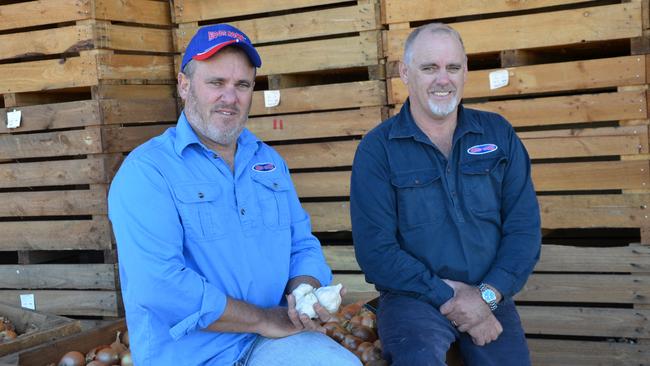
MOONROCKS
St George, QLD
Winner 2021
Brothers Andrew and David Moon operate Moonrocks, which grows onions as well as garlic, pumpkin, broccoli and sweet corn, supplying supermarkets nationally and employing up to 120 workers.
REDGOLD
Wemen, VIC
Finalist 2021
The Young family operates the Redgold horticulture business near Wemen in northwest Victoria, specialising in the winter supply of leafy baby green salads as well as iceberg and cos lettuce.
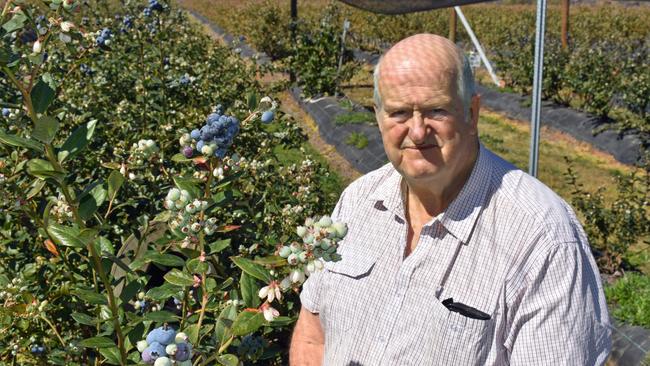
MOUNTAIN BLUE
Tabulam, NSW
Winner 2020
The Mountain Blue business in the NSW Northern Rivers region has grown into one of the largest blueberry breeding, farming and marketing businesses in the world.
BUSCH ORGANICS
Lindenow, VIC
Finalist 2020
The Busch family grows six vegetable crops – beetroot, broccoli, beans, celery, cabbage and leek – year-round on 120 hectares over two properties, at Lindenow and a leased block at Stratford.
NEWTON ORCHARDS
Manjimup, WA
Finalist 2020
Newton Orchards produces about 6000 tonnes of apples a year at Manjimup, 300km south of Perth, and is focused on reducing waste.
CRITTENDEN ESTATE
Dromana, VIC
Finalist 2019
The Crittenden family produces 1500-2000 cases of premium wine annually from 4.5ha of vines at Dromana on Victoria’s Mornington Peninsula, and have a strong focus on soil health.
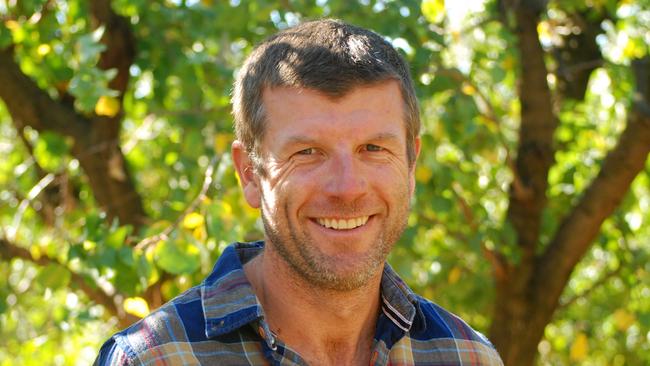
JASON SHIELDS, PLUNKETT ORCHARDS
Ardmona, VIC
Winner 2019
Jason Shields is the orchard manager at Plunkett Orchards, which grows 9000 tonnes of apples and pears near Ardmona in Victoria’s Goulburn Valley and is expanding at an impressive rate of 10 per cent a year.
RUGBY FARM
Gatton, QLD
Finalist 2019
Rugby Farm is one of Australia’s biggest horticulture players – planting the equivalent of three average-sized vegetable farms a week, producing 20 million packs of value-added produce a year.
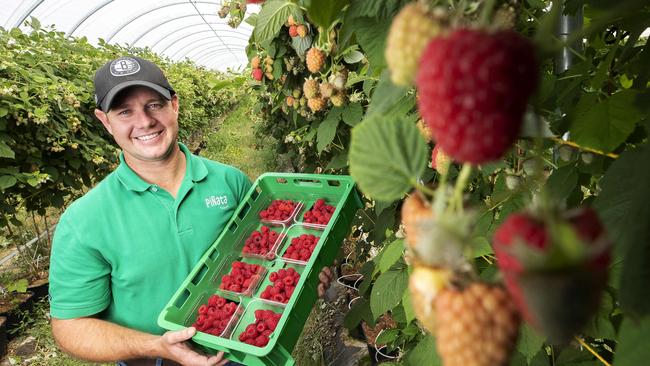
PINATA FARMS
Wamuran, QLD
Winner 2018
Nine million pineapples, 130 million strawberries and 13 million mangoes make up a proven business recipe for Piñata Farms, run by brothers Gavin and Stephen Scurr and their families across 1010ha.
WINDHUM FARMS
Bundaberg, QLD
Finalist 2018
Darren and Linda Zunker, from Bundaberg in Queensland, supplies more than 100 pallets of sweet potatoes a week to all of Australia’s major vegetable wholesale markets.
SUNNY HILL FLOWERS
Silvan, VIC
2018 Finalist
The de Wits produce up to six million stems of specialist lilies and Dutch iris annually, employs up to 17 workers and incorporates state-of-the-art labour saving technology,
KOALA FARMS
Gatton, QLD
Finalist 2017
Koala Farms was founded in 1995, when Anthony Staatz took over his fifth-generation family farm, and now covers 550 hectares spread across five properties producing 120-150 pallets of produce, mostly lettuce, a day.
FLAVORITE
Warragul, VIC
Finalist 2017
Flavorite, which has expanded beyond its core tomato origins into capsicums, cucumbers, palermos and eggplants, is now one of the largest family owned glasshouse fresh produce businesses in the nation.
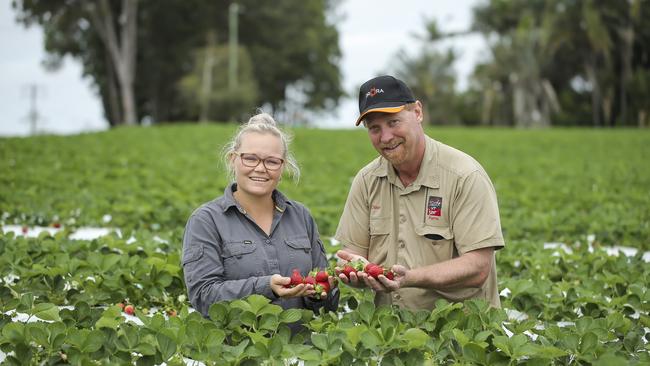
TASTE ‘N SEE
Bellmere, QLD
Winner 2017
Family-run business Taste ‘N See grows 2.5 million strawberry plants, producing 1680 tonnes of fruit a year, from 38 hectares at Bellmere, near Caboolture in southeast Queensland, with all fruit marketed first-grade.
COASTAL HYDROPONICS
Gilston, QLD
Finalist 2016
Belinda Frentz runs Coastal Hydroponics, a pioneer in salad and herb production that has grown from humble beginnings to supply up to 28 tonnes of product a week to 170 Coles stores across Queensland.
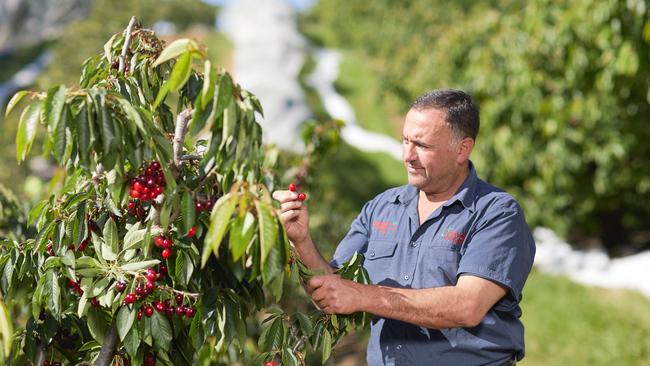
CERAVOLO ORCHARDS
Adelaide Hills, SA
Winner 2016
Spread across 300 hectares and eight properties, Ceravolo Orchards is run by three generations of the Ceravolo family. The dynamic business encompasses 10 varieties of apples, planted over about 210 hectares, as well as pears, strawberries and cherries.
S&M LASPINA
Whorouly, VIC
2016 Finalist
Growing two million capsicums a year is no mean feat. But it’s an achievement innovative horticulture farmers Joe and Kim LaSpina took in their stride. On the Ovens River flats at Whorouly, the former tobacco growers were honoured for running S&M LaSpina — one of the state’s biggest capsicum businesses.
SIMPLY ROSE PETALS
Swan Hill, VIC
2015 Finalist
Turning a cut flower farm into a rose petal paradise proved a lucrative move for mother-and-daughter duo Sarah Sammon and Jan Slater. The duo created a dynamic business selling petals – freeze dried for 10-14 days – to the blooming romance and wedding markets.
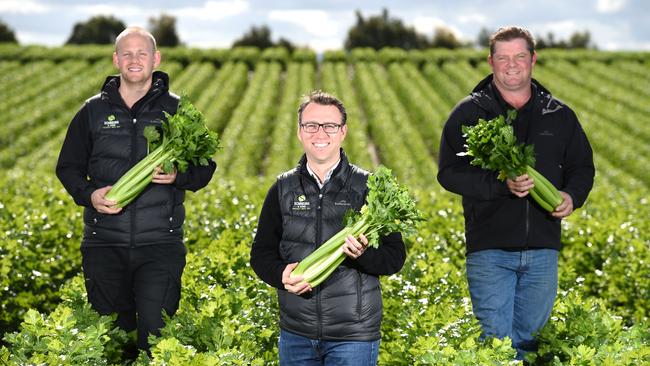
SCHREURS AND SONS
Clyde, VIC
2015 Winner
Chris, Adam and Ben Schreurs took over the family vegetable growing business at Clyde in 2013, rebranded it Schreurs and Sons, focused heavily on the promotion of new markets and investment in new technology. In their first two years exports increased 10-fold.
BORATTO FARMS
Bacchus Marsh, ViIC
2015 Finalist
Get big, buy the best equipment available and grow the lines that others put in the too-hard basket. That’s the philosophy behind the expansion of family-owned salad-leaf specialist Boratto Farms. They were one of the biggest growers of baby leaf in Victoria in 2015, supplying One Harvest.
WATTLE ORGANIC FARMS
Tresco West, VIC
2014 Finalist
Nathan Free, of Wattle Organic Farms, transitioned his family’s conventional farming blocks into highly productive organic lots that produced fruit and vegetables for Woolworths’ Macro organic brand and for wholesale markets across the nation.
TNB TULIPS
Monbulk, VIC
2014 Finalist
Automation is the backbone of the Bakker family’s TNB Tulips at Monbulk in Victoria. In 2014, tulips were picked every day of the year from 4000sq m of glasshouses. The two weeks leading up to Mother’s Day were the busiest for the business with 400,000 stems sold.
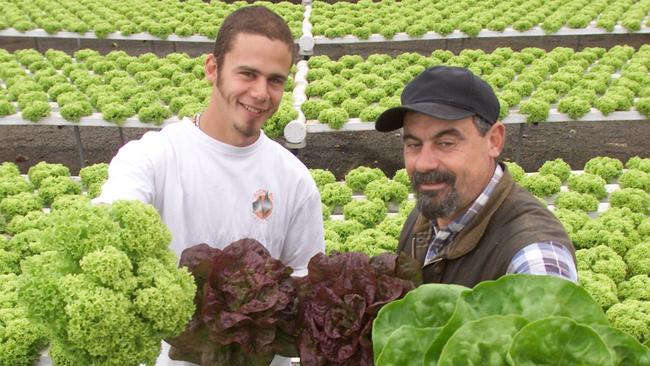
PAULMAR HYDROPONICS
Wallington, VIC
2013 Winner
Michael Mifsud with parents Paul and Mary were running this dynamic hydroponics company produceing about four million lettuces each year in 2013. Their crops included Michael’s unique creation, the Symphony lettuce, a combination of green oak, green coral and red coral, produced by sowing three seeds together and harvesting the result with one rootball. The trio lettuce was taken up by Coles supermarkets and suddenly a decline in decorative lettuce sales was reversed and, in fact, doubled.
KOALA COUNTRY ORCHARDS
Yarck, VIC
2013 Finalist
Simon and Michael Rouget along with their wives, Alison and Lisa, took over the family’s third-generation Yarra Valley fruit business, Koala Country Orchards, and in 2000 relocated it to the better growing conditions at Yarck, in Victoria’s North East. Since then, they streamlined, upgraded and added exporting to the business, positioning it for a long and fruitful future.
KELLY BROS
Yarrawonga, VIC
2013 Finalist
Sixth-generation vegetable grower Richard Kelly and his wife, Heidi, were heading up Kelly Bros in 2013, growing a range of vegetables on 400 hectares on the Murray River between Cobram and Yarrawonga in northern Victoria. They were growing leeks to lettuces, spinach to zucchini, capsicums, eggplants, corn, chilli and parsnips, sending two B-Double loads of produce to Melbourne Wholesale Markets each morning
MICHAEL AND JINA TRIPODI
Lake Boga, VIC
2012 Finalist
Stone-fruit growers Michael and Jina Tripodi launched a revival of the borlotti bean with their own brand of freshly shelled peas. The couple created a fully automated picking and packing system to give their produce a fortnights’ extra shelf life. The advanced machinery produced fresh, shelled peas and beans harvested at their peak, then washed, sorted and packaged as Edible Gems, ready for consumption.
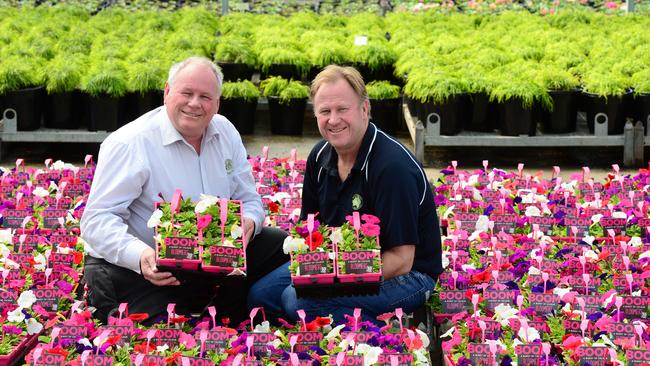
BOOMAROO NURSERIES
Lara, VIC
2012 Winner
This specialist producer of vegetable seedlings boasts 40,000 square metres of glasshouses, employs 130 people full-time and in 2011 supplied 300 million seedlings to growers across Australia. A state-of-the-art growing system allowed for the production of more than 170 varieties of vegetables, lettuce and potted flowers every week, growing thousands of different varieties throughout the year using advanced genetics and technology. The operation is powered by an electronic system the Jacometti family designed themselves.
BRENDON GOULLET
Mildura, VIC
2012 Finalist
Brendon Goullet in 2012 was growing and agronomy manager for Australian Garlic Producers using his knowledge to help shape the future of the industry. In his role in an Australian breeding trial he hoped to improve garlic production across the country. Brendon studied a Bachelor of Agriculture, majoring in horticulture, at the University of Adelaide and, after completing his degree, was recruited by agricultural consultancy company Agri Exchange as an irrigation and soil agronomist.
INNOVATIVE
PECORA DAIRY
Robertson, NSW
Finalist 2021
Cressida and Michael Cains run a flock of 150 East Friesian ewes on 80 hectares, nestled in lush rainforest near Robertson in the NSW Southern Highlands. They have a gentle approach to the land, animals and cheeses, and a decade ago launched Pecora Dairy. They now make nine tonnes of cheese a year in five varieties plus pot-set yoghurt.
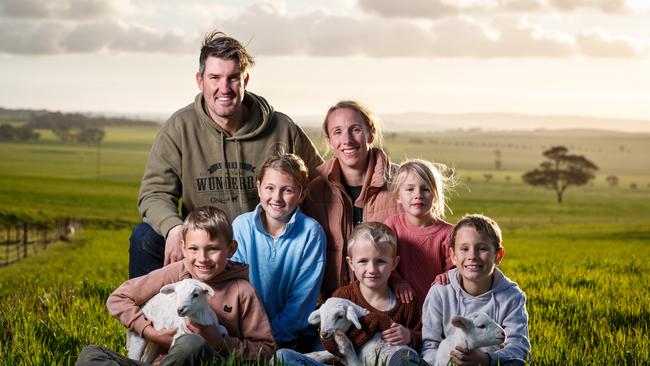
WUNDERBAR LAMB
Black Springs, SA
Winner 2021
Fifth-generation farmer Ben and Kerry Heinrich run 1000 ewes on 780 hectares near Black Springs in South Australia’s Clare Valley. The couple places a strong emphasis on eating quality and animal welfare, aiming to produce premium free-range lamb to the highest standards. They were the first lamb producers in Australia to be certified through Humane Choice.
BLOCK 275
Eradu, WA
Finalist 2021
West Australian farmers Liam and Fiona Mann have hit gold with their pressed canola oil.
The couple, from Eradu, about 100km east of Geraldton, doesn’t own any land but lease from Fiona’s parents an area of 680 hectares of arable land. They came up with an idea of pressing their own canola oil, launching the Block 275 brand in late 2020.
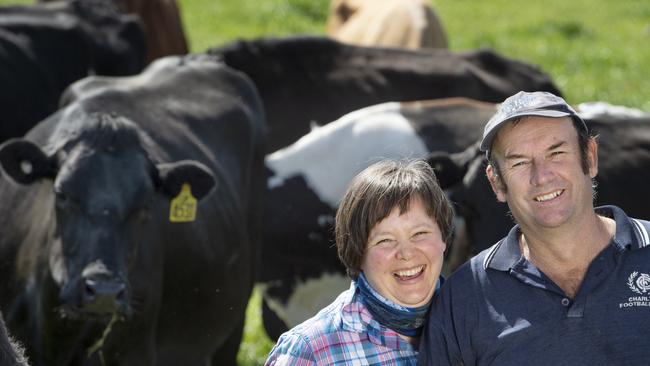
BETHUNE LANE DAIRY
Lake Boga, VIC
Winner 2020
Paul and Sally Bethune’s boutique dairy brand produces milk, yoghurt and chocolate milk, selling through farmers’ markets and retailers from Mildura to Kerang.
The business produces some of the creamiest milk in the business while maximising water efficiency and keeping costs under tight control.
BIG HEART BAMBOO
Belli Park, QLD
Finalist 2020
On an eight-hectare slice of the Dart family’s Belli Park farm, Becky Dart produces premium bamboo shoots and a range of bamboo preserves and chutneys. Her Big Heart Bamboo brand has reintroduced bamboo to Australian chefs and diners, as a premium, Australian-grown vegetable.
THE PINNAROO FARMER
Pinnaroo, SA
Finalist 2020
Phillipa and Skeet Lawson launched a paddock-to-plate brand producing a high-protein, gluten-free flour during the pandemic. The couple strives to maximise production and soil health while reducing chemical use on the family’s 1500-hectare wheat, barley and lentil operation at Pinnaroo, in the South Australia Mallee near the Victoria border.
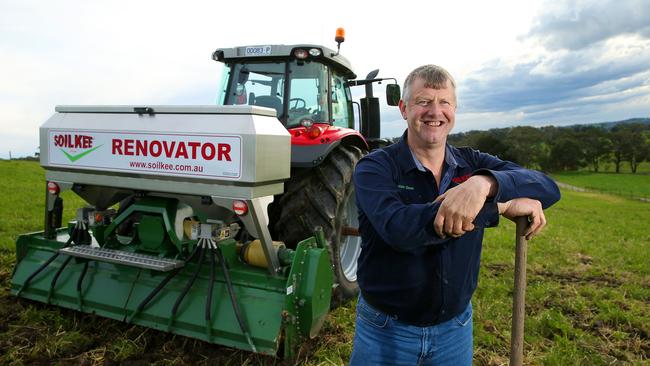
SOILKEE
Hallora, VIC
Winner 2019
Niels Olsen and his wife, Marja, and sons, Shane, Jamie and Shaun, dramatically boosted soil health on their 121ha cattle property at Hallora in Victoria’s South Gippsland, using their invention called the Soilkee Renovator. The machine opened two new revenue streams for the family.
PETITE INGREDIENT
Hoddles Creek, VIC
Finalist 2019
Run on half a hectare in Victoria’s Yarra Valley, Petite Ingredient was Australia’s largest edible-flower business in range and turnover in 2019. Grower Jocelyn Cross sold 10,000 products a month, in 60 different lines, and constantly reinvented her value-added range to stay ahead of competition.
LEAP FARM
Copping, TAS
Finalist 2019
Goat farmers Iain and Kate Field were running a milking herd of Toggenburgs on 107ha at Copping, in southeast Tasmania with a focus on animal husbandry and sustainable land care. The couple were honoured for their approach and the gourmet goat cheese they made on farm.
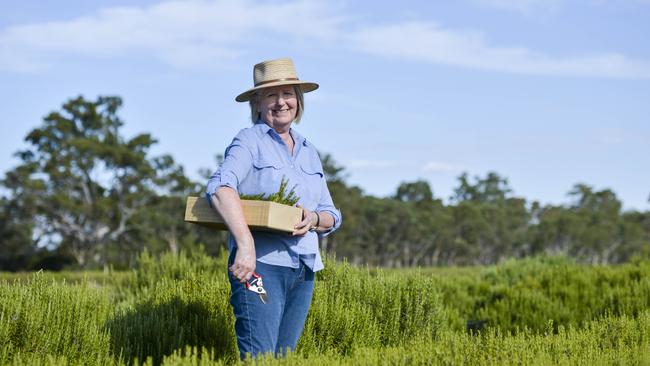
GLENELG RIVER HERBS
Balmoral, VIC
Winner 2018
Anita Watt was running one of Australia’s largest rosemary operations, producing 35 tonnes of herbs a year from 20ha in 2018. The business had the market cornered on fresh rosemary and dried herbs, supplying supermarkets and food-service customers.
LUPINS FOR LIFE
Brocklesby, NSW
Finalist 2018
The Drew family created a farm-to-fork operation like no other, launching Lupins for Life tin 2015 to process their entire 100ha annual lupin harvest. The business produced lupin flakes, flour, kibble, crump and semolina, sold in 400g packets.
OUTBACK HARVEST
Wakool, NSW
Finalist 2018
The McNaul family launched Outback Harvest to use the ancient grain teff grown on their 1820ha farm. The range, stocked in almost 300 outlets across Australia, included teff grain and flour, teff pancake, bread and muffin mixes, and teff pasta.
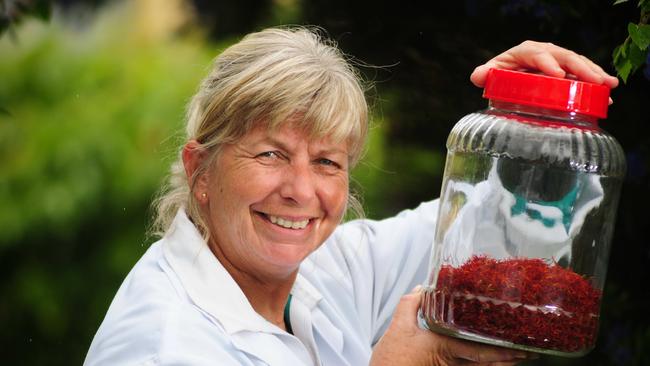
TAS-SAFF
Glaziers Bay, TAS
Winner 2017
Nicky and Terry Noonan built their saffron business over 30 years from their 22-hectare property at Glaziers Bay, near Hobart, in Tasmania. When they won the innovative category of the Farmer of the Year awards in 2017, they were supplying 4kg of saffron threads a year - nearly half of the total Australian harvest of 10kg – to both international and Australian retailers, and had just launched the Growers’ Own Saffron Gin.
CAPTAINS CREEK ORGANIC WINES
Blampied, VIC
Finalist 2017
Doug and Carolyn May in 2017 produced an array of products from organic wine to organic flour on their 80-hectare property at Blampied, in central Victoria. Captains Creek Organic Wines vineyard produced six varieties of wine from two hectares under vine. All their produce, including the harvest from 2.5 hectares of wheat, was used in their on-farm restaurant.
MACABEE ESTATE
Toodyay, WA
Finalist 2017
Anthea Brown used biological principles to manage dorper sheep on the 880-hectare Macabee Estate in Toodyay in Western Australia. She sold direct to the consumer at the Subiaco Farmers’ Market in Perth and operated a stud, selling breeding rams to local customers and exporting embryos from stud ewes to China and South America.
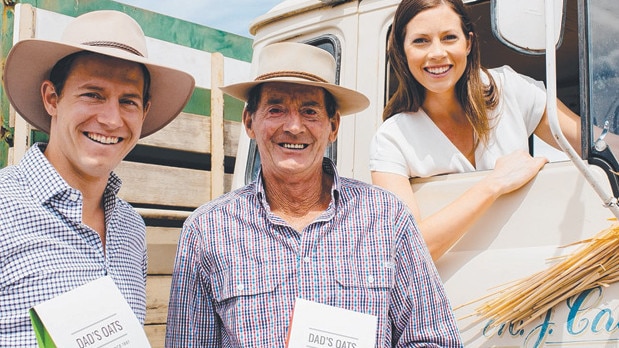
DAD’S OATS
Natte Yallock, VIC
Winner 2016
The year 2016 was a massive one of growth for the Cain family from Natte Yallock in Victoria’s Mallee, who launched their single-origin oats, transformed their family farm business model and propelled a succession plan into action.
The concept of Dad’s Oats was the brainchild of fourth-generation cropping farmer Maurice Cain’s adult children, Alicia and Peter. The siblings reasoned if people cared about the grapes and the story behind their wine, surely the same applied to the oats in their porridge, and they coined the term “single-origin oats” – made with oats from the best paddocks of their 800-hectare Natte Yallock farm.
KINGFISHER CITRUS
Narrung, VIC
Finalist 2016
Since 1938 the Fisher family produced citrus for wholesale markets and exports on their 113-hectare property at Narrung, near Swan Hill. But drought and a rising Australian dollar forced the families to make a change, and they turned to farmers’ markets and online sales.
They have had huge success, also using organic principles to grow the produce, and added a 30-hectare farm at Nambrok in Gippsland for extra citrus production.
BEEF@THEFARMGATE
Orbost, VIC
Finalist 2016
Ian and Rosanne Trevaskis transformed the family dairy farm near Orbost into a beef operation, added sheep, and moved into selling direct to customers online with a following of more than 350 regular buyers.
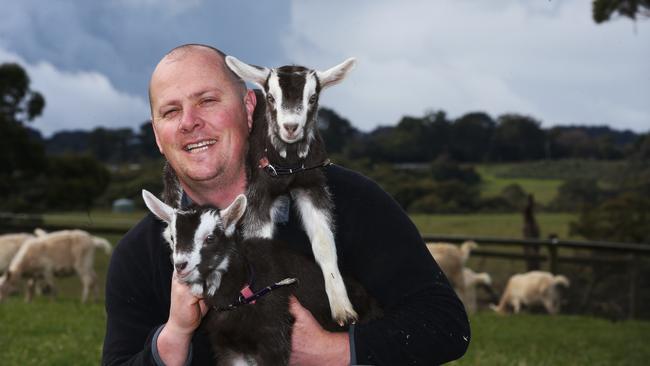
MAIN RIDGE DAIRY
Main Ridge, VIC
Winner 2015
Attention to detail set Bess and Damien Noxon apart from the rest of the field. The couple made award-winning goats cheese on their 52-hectare farm at Main Ridge, tracing their success in the cheese factory right back to the day the young goats take their first steps.
PENINSULA FRESH ORGANICS
Baxter, VIC
Finalist 2015
Wayne and Tash Shields are the powerhouse behind this market garden business, which produced 50 lines of organic vegetables in 2015.
They specialised in heirloom and heritage vegetables including heirloom beetroot, carrots and radishes, rainbow chard, red spring onion and purple sprouting broccolini. It was grown on two properties – 16 hectares at Baxter on the Mornington Peninsula and 40 hectares at Barham on the Murray River - for an extended growing season.
MOONDARRA BLUEBERRIES
Moondarra, VIC
Finalist 2015
The Deveson family concentration on local markets, organic growing and high quality fruit, with an emphasis on flavour rather than yield. They sell to retail markets, shops and farmers’ markets, which gives them control of the price and payment.
The 64-hectare farm also includes a blueberry nursery, propagating up to 100,000 plants each year which are sold to commercial growers and gardeners. They employ five permanent staff and up to 30 seasonal
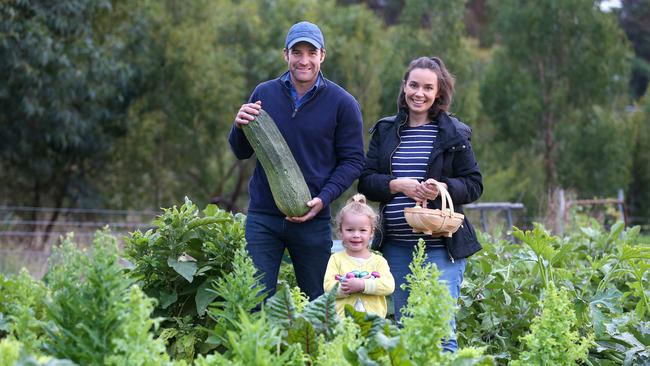
RAVENS CREEK FARM
Geelong, VIC
Winner 2014
Hayden and Jasmin Findlay were running Ravens Creek Farm at Moriac, near Geelong, where in 2014 they had Red Devon and Square Meater cattle, a berry orchard with six different varieties, seasonal vegetables, fruits from pomegranates to cherries, cut flowers of banksias and proteas, rare-breed pigs, sheep, laying hens, eucalyptus trees for timber and oak trees inoculated with truffles.
RIVERSDALE FARM ORGANICS
Koonoomoo, VIC
Finalist 2014
Sue McKenzie and Kevin Pace run Riversdale Farm Organic Australia on 24 hectares at Koonoomoo on the Murray River near Cobram. In 2014, the farm grew lemons, oranges and grapefruit, and was in the top 10 per cent, by size, of organic citrus properties in Australia.
BLUE GABLES VINEYARD
Upper Maffra West, VIC
Finalist 2014
Alistair and Catherine Hicks were honoured in 2014 for their Blue Gables Vineyard, which they ran on an old dairy turnout paddock high above the Newry flats at Upper Maffra West, in Gippsland. The couple grew 2.8 hectares of wine grapes in four varieties - shiraz, sauvignon blanc, pinot gris and chardonnay.
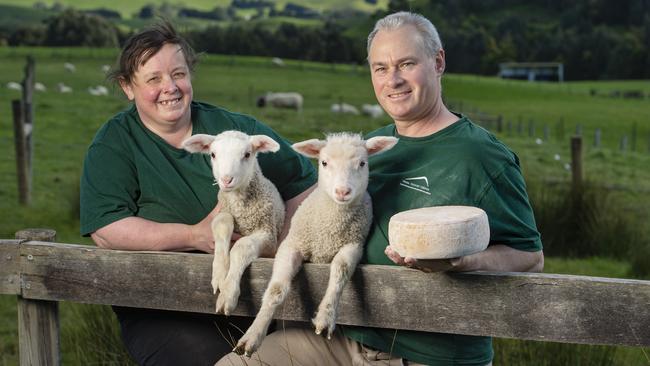
PROM COUNTRY CHEESE
Moyarra, VIC
Winner 2013
Burke and Bronwyn Brandon run Prom Country Cheese on their 77-hectare farm at Moyarra in South Gippsland. In 2013, they had 200 sheep which they milked twice a day. Burke then transported the milk to his parents’ small cheese factory and tasting rooms at Red Hill where he and his father, Trevor Brandon, made up to 25 different cheeses from the sheep’s milk plus goats’ and cows’ milk, depending on what’s in season.
Burke and Trevor made about 10,000kg of cheese each year, and had won a stack of awards including best Victorian product at the Royal Melbourne Fine Food Awards in 2012.
B&B BASIL
Bendigo East, VIC
Finalist 2013
George and Jan Bobin and their daughter, Susie Young, were honoured in 2013 for their B&B Basil operation, which grows herbs and micro-greens in five glasshouses on their one-hectare property at Bendigo East.
RESTDOWN WINES
Caldwell, NSW
Finalist 2013
Don and Jo Hearn added a vineyard to Don’s family farm at Caldwell, southwest of Deniliquin in NSW, and in 2013 were tending 10,000 vines and producing 5000 litres of wine - semillon and merlot plus shiraz, cabernet sauvignon, sangiovese and chardonnay - a year. They sold at farmers’ markets, restaurants in southern NSW and northern Victoria, at festivals, online and from their cellar door.
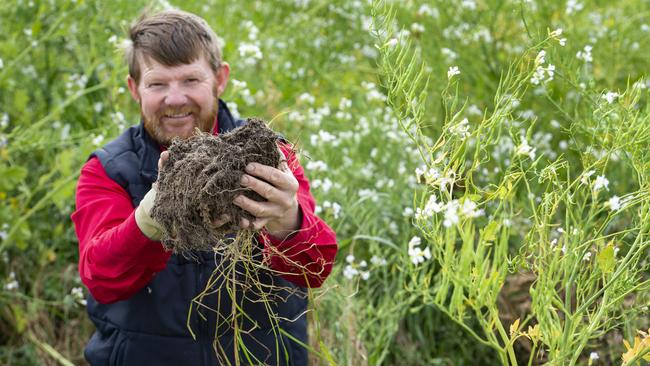
MCIVOR FARM FOODS
Tooborac, VIC
Winner 2012
Free-range pig farmers Belinda and Jason Hagan have really gone the whole hog with their Berkshire pig operation. The hardworking couple run McIvor Farm Foods, rearing 120 sows on 200 hectares at Tooborac, south of Heathcote, in central Victoria.
In the past eight years, the Hagans more than doubled their sow numbers, bought more land, added a licensed butchery to their farmgate shop, launched online sales with direct delivery and created a local food hub.
YARRA VALLEY GOURMET GREENHOUSE
Mt Evelyn, VIC
Finalist 2012
Meagan Bertram and Steven Briggs were honoured in 2012 for running Yarra Valley Gourmet Greenhouse, supplying chefs and restaurants in Melbourne with heirloom vegetables, herbs and edible flowers.
SEVEN HILLS TALLAROOK
Tallarook, VIC
Finalist 2012
Since 2000, Seven Hills Tallarook has forged a reputation as the premier supplier of Boer goats for sale in Victoria.
SHEEP
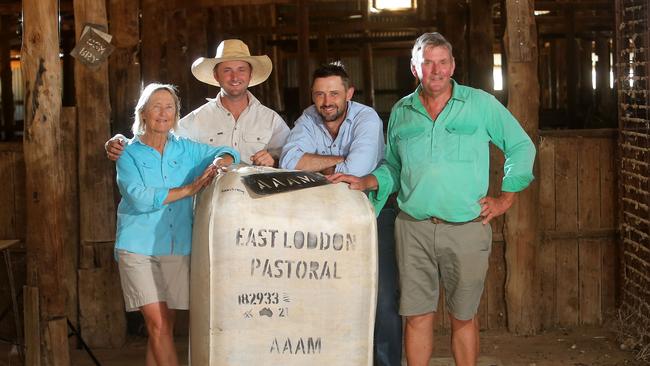
EAST LODDON MERINO
Wanganella, NSW
Winner 2021
Brothers Tom and Marcus Hooke, along with their parents Dianne and Bill, run East Loddon Merinos across three farms at Wanganella and Booroorban on the Hay Plains of western NSW.
The family focuses on profitability over production via benchmarking qualities and has introduced a range of new management practises to attract premium prices including non-mulesing, Responsible Wool Standards accreditation and regenerative agriculture.
WALLALOO PARK MERINOS
Marnoo, VIC
Finalist 2021
So much more than just a Merino stud – Wallaloo Park is an innovative broadacre and sheep business that has successfully melded tradition and growth, run by John and Jenny Carter, their son Trent and his wife, Kate. The Carters run 2000 ewes and have had enormous success with data collection and efficiency gains to a point where the stud and flock ewes now cut 8.5kg wool and wean 130 per cent lambs – up from 100 per cent a decade ago.
LYNDALL FARM
Hamilton, Tas
Finalist 2021
On their 280-hectare Lyndall Farm near Hamilton, in central Tasmania, George and Galina Shea run a flock of 1100 ewes producing 1700 lambs as part of a business aimed at producing the best-tasting lamb commanding the best-possible returns. George works with the Lambpro stud enterprise at Holbrook in NSW to tailor his breeding program, and the couple has established a business relationship with Tasmanian butcher shop Meat Mistress, which not only stocks their lamb but acts as a wholesaler to top-end restaurants in Hobart.
GRACEMERE MERINOS
Bengworden, VIC
Finalist 2020
A period of dry weather in 2009 made Rick and Jenny Robertson take stock of the way they were running their Merino flock at Bengworden in East Gippsland. In a radical move, they opted to focus on a “hat-trick” of three key principles: risk and profitability, the landscape, and animal welfare and performance, which has provided more control over the business, reduced stress levels and increased profits.
KARRAWARRA PASTORAL
Wantabadgery, NSW
Finalist 2020
Leo and Vanessa Herbert run Karrawarra Pastoral spread across 4455 hectares in the rolling hills near Wantabadgery, NSW, which in the past five years has been transformed into one of the most progressive and successful sheep businesses in the nation. The former Dorper breeders decided to steer their sheep flock towards increased lambing survivability and production, introducing the Highlander and Focus Prime breeds, and are now a breeding partner for Focus Genetics, achieving huge increases in ewe scanning rates and profitability.
KINGAROY PARTNERSHIP
Hamilton, VIC
Winner 2020
A focus on efficiency from using sheep handlers for stock work to managing ewe body conditions carefully and maximising the production of lambs is the key to success for Darren and Kylie Schurmann at Strathkellar, near Hamilton.
The couple run 5000 composite ewes and produce 7000 lambs on 5000 hectares and their careful management strategies have paid off with the flock recording lambing percentages of 145 per cent, and the business producing 14 lambs or 360kg of lamb per hectare.
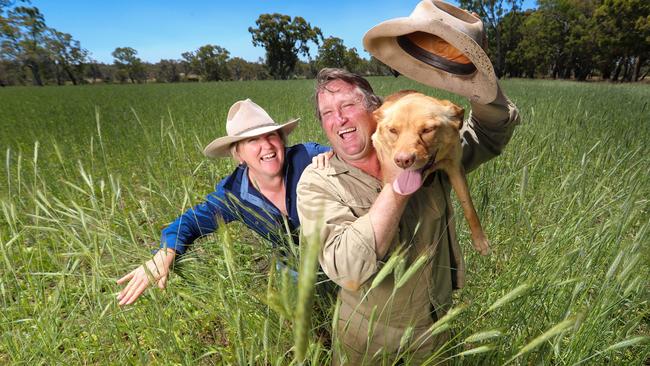
DUNCAN AND JESS BARBER
Metcalf, VIC
Winner 2019
Operating under the “get big or get out” philosophy, Duncan and Jess Barber were in 2019 running 25,000 Saxon Merinos and a crossbred flock, spreading the livestock across four landholdings. Using a slow and steady expansion strategy over the past 15 years, the couple invested in a quartet of properties, multiplied sheep numbers, boosted their wool’s quality and strength, all while doubling production volume.
WILLERA MERINOS
Serpentine, VIC
Finalist 2019
By building consideration for consumers and the planet into their production approach, Willera Merinos was kicking goals for the business, the environment and generations to come.
The wool, meat and cropping enterprise, run by Robert and Cathie Hooke and their three adult children and their partners at Serpentine, aimed to breed sheep that were easier for people to manage and in line with consumer expectations around animal welfare and best-practice management such as taking the trailblazing step away from mulesing
GORDON BROWN
Shelford, VIC
Finalist 2019
Through careful use of genetics and being diligent with flock monitoring, Gordon Brown significantly increased production and profits on his 1220 hectare property at Shelford in southwest Victoria’s. The decision to use Glendemar Multi Purpose Merino genetics had been a winner with significant change in wool type, softness and brightness, testing 23 micron, and progeny cutting an extra kilogram of wool, worth twice as much as before.
GLENN WHITE
Dunkeld, VIC
Finalist 2018
Since coming on board in 2010, Dunkeld Pastoral Company manager Glenn White dramatically ramped up production, animal welfare and environment stewardship on the company’s farms, which spanned 8300 hectares around Dunkeld in the Western District and were traditionally home to fine-wool Merinos and Hereford cattle. In 2018, it was all prime lamb and Angus cattle, producing 450 tonnes of lamb, 250 tonnes of mutton, 100 tonnes of wool and 100 tonnes of beef annually, figures that have doubled under Glenn’s management strategies.
GOODE FAMILY
Kingston SE, SA
Finalist 2018
Despite their family having operated around Kingston SE, in South Australia’s South East, since the 1880s, father and son team Deane and Henry Goode has found success by giving tradition very much a back seat to innovation. The Goodes introduced a raft of changes to breeding and management techniques to boost their bottom line with spectacular results including the switch to shearing sheep every six months, instead of once a year, which lifted production by 10-15 per cent, and introducing Multi Purpose Merinos and focusing on fertility, which has seen lambing rates soar by 17 per cent.
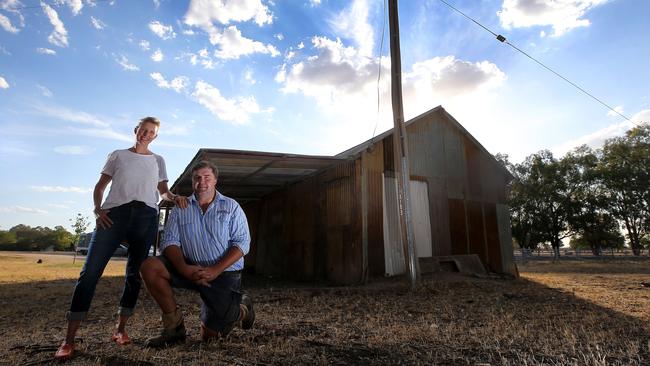
TOM AND PHOEBE BULL
Holbrook, NSW
Winner 2018
For innovative farming couple Tom and Phoebe Bull, from Holbrook in southern NSW, farming was about much more than just what happens in the paddock. Tom and Phoebe run the Lambpro sheep studs – a performance-based business producing genetics for clients that produced a collective 800,000 lambs in 2018. Their aim was to create Australia’s best tasting lamb by identifying and breeding sheep for lucrative marbling traits and eating quality.
TREFUSIS MERINOS
Ross, TAS
Finalist 2017
A total rethink on breeding and new genetics helped transform Georgina and Hamish Wallace’s Trefusis Merino stud at Ross in Tasmania. Their wool cuts increased 44 per cent, with ewes producing 20 per cent more lambs and sheep were 20 per cent heavier, achieved with only a slight increase in micron ensuring they can still command premium returns.
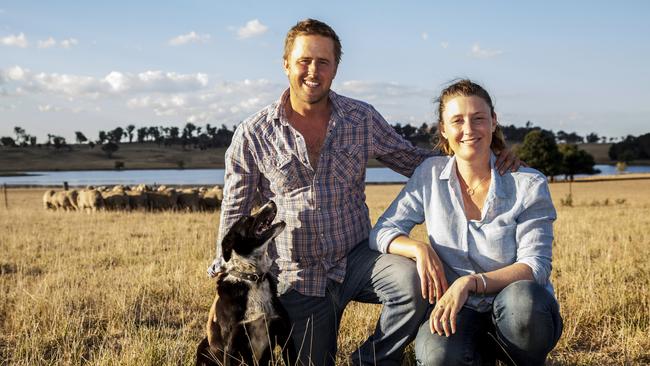
YALGOO GENETICS
Walcha, NSW
Winner 2017
Fast-tracking genetic gain within their sheep flock using a selection index, using a grower consortium and creating strong marketing alliances significantly boosted the bottom line for the Nivison family of Yalgoo Genetics. Yalgoo, at Walcha, in the NSW Northern Tablelands region, consisted of a Merino stud running 650 breeding ewes, a 6700-head commercial ewe flock as well as stud and commercial beef enterprises.
DAMIAN & REBECCA MERRETT
Apsley, VIC
Finalist 2017
Western Victoria sheep producer Damian Merrett’s management on his 1410-hectare property at Apsley was a prime example of how to turn off lambs profitably. He sold his entire drop of nearly 9000 prime lambs in just two weeks in 2017, consigning them over the hooks straight off their mothers and they killed out at an impressive 26kg carcass weight at just 20 weeks old.
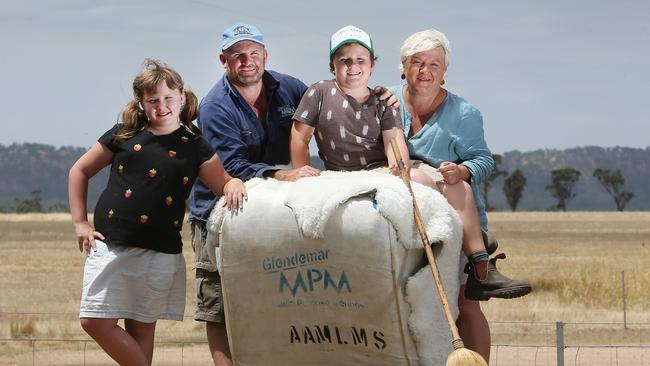
GLENDEMAR MERINOS
Marnoo, VIC
Winner 2016
Turning to science to run a sheep business placed Ben and Cheryl Duxson and their Glendemar Multi Purpose Merino stud firmly at the top of the flocks in 2016. The family had been leaders in adopting Australian Sheep Breeding Values and DNA technology into their breeding program, which Ben said was something forward-thinking commercial sheep breeders in the industry were looking for.
GLENLEE FARM
Ararat, VIC
Finalist 2016
Fifth-generation Ararat farmer Craig Hinchliffe and wife Sue, enforced a no-holds barred approach to extract the best possible returns from their sheep flock when returning to the family farm in 2015. They rapidly invested in genetics, pastures and paddock infrastructure, and helped establish a new paddock to plate lamb venture to help maximise profits on their 750-hectare Glenlee Farm.
ANDY & ANDREA MCNAUGHTON
Stratford, VIC
Finalist 2016
Following severe drought in 2012, sixth-generation Gippsland wool growers Andy and Andrea reassessed their operation and dramatically altered course to ensure certainty in production, more viability, better returns and financial security. They purchased an irrigation property to complement their wool business and started producing prime lambs.
HANNATON MERINOS
Kaniva, VIC
Finalist 2015
The Hicks family from Kaniva had a rich history in sheep breeding, with its stud, Hannaton Merinos, producing quality rams for almost 100 years.
FELIX RAMS
Greenethorpe, NSW
Finalist 2015
Rodney Watt was passionate about numbers and his sheep and had recorded the performance of his flock since 1984 when he charted the growth rates of his first drop of White Suffolk lambs at weaning, weighted for things such as the age of the lamb’s mother and whether it was a twin or a single.
ALAN & DONNA BENNETT
Lawloit, VIC
Winner 2015
Cutting edge genetics and strict management practises helped boost lamb production by an impressive 15 per cent within a year on the Bennett family property at Lawloit in Victoria’s Wimmera district. Alan and Donna Bennett, and children Ellen and Luke, were running 4000 Merino and prime lamb ewes alongside a 2500-hectare cropping program across several properties totalling 7800 hectares in 2015.
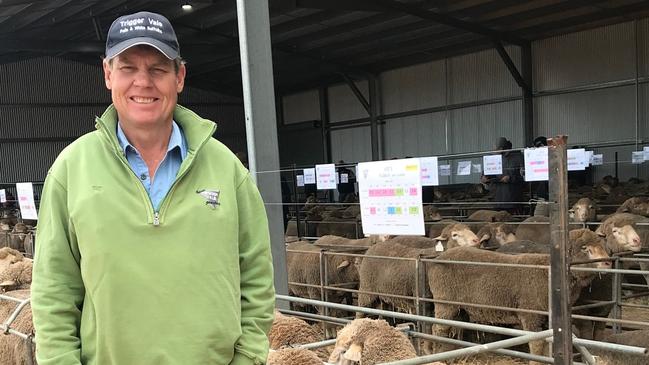
TRIGGER VALE
Lockhart, NSW
Winner 2014
Andrew and Mandi Bouffler were running Trigger Vale Studs with almost 2200 White Suffolk and Poll Merino breeding ewes on their 1630-hectare family farm in 2014. Poll Merinos were shorn twice a year to maximise survival rates and rams are selected for muscle, fat and growth traits as well as for their wool.
DAVID & MICHELLE FARLEY
Kybybolite, SA
Finalist 2014
Shearer-turned-large scale prime lamb producer David Farley and wife Michelle, were running 10,000 crossbred ewes on 2000 hectares in the South Australian mixed-farming district of Kybybolite in 2014. The Farleys had switched from buying first-cross ewes annually at the Naracoorte feature sales to breeding their own maternal composites, which is a move that gave them greater control over ewe size while improving their genetics and biosecurity.
DARREN & SHANNON BAHR
The Rock, NSW
Finalist 2014
Darren Bahr mastered the art of shearing, then turned his attention to breeding high-performance Merinos on his family farm at The Rock, NSW. Darren and wife, Shannon, were running 1700 breeding ewes in 2014, as part of a mixed-farming operation with Darren’s father, Colin, and uncle Graham. To ensure they kept the highest-value sheep, the Bahrs introduced a strict selection process based on the value of the fleece they cut and it was paying big dividends.
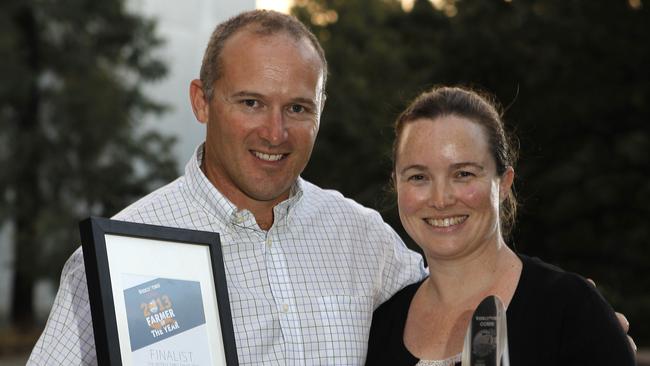
GLENLEA PARK MERINOS
Pinnaroo, SA
Winner 2013
A change of bloodlines and use of embryo-transfer work has paid dividends for Peter and Marianne Wallis and their South Australian Merino flock. The couple, who were running the Glenlea Park Merinos stud on 1100 hectares of Mallee country at Pinnaroo in 2013, significantly changed their breeding after learning about soft-rolling skins and noticed white wools and sharp crimps after just one cross from the Charinga stud at Marnoo.
BARWON LAMB
Winchelsea, VIC
Finalist 2013
Brother and sister Nigel and Georgie Thomson revived the family’s long association with the meat trade through their Barwon Lamb paddock-to-plate venture. For more than a century, the Thomson family had a long association with the meat trade in the Geelong area - their Corio Trading Company owned the Geelong abattoirs and they had run butcher shops since the 1870s.
In 2012, Nigel and Georgie pledged to continue the family tradition, teaming up to start the Barwon Lamb paddock-to-plate business from the 140-hectare farm the siblings’ parents bought 32 years ago.
GOLDER FAMILY
Temora, NSW
Finalist 2013
The Golder family, Graeme and sons Chris and Mark, were running 2400 breeding ewes and crop wheat, canola and oats in 2013 on 2430ha near Temora in the NSW Riverina. Since 2002 they almost doubled the size of their operation to run about 2100 Merino and 300 registered Border Leicester ewes alongside 1295ha of crops thanks to their careful management regime.
CENTREPLUS MERINO
Tullamore, NSW
Winner 2012
Robert Mortimer was honoured for running one of the most progressive and successful Merino studs in Australia, Centre Plus Merinos, at Tullamore southwest of Dubbo in NSW, which had been using objective measurement and performance recording of sheep since the 1970s.
There were about 15 breeders in the Centre Plus group who, with Robert at the helm, ran about 20,000 ewes, the progeny of which was used to genetically improve the participating flocks.
PETER & VAL TISCHLER
Edenhope, VIC
Finalist 2012
Dohne sheep delivered more lambs and easier management to the Tischler family’s grazing enterprise in the Western District and it was why they could take over from their traditional first-cross flock. The Dohnes provided a huge lift in fertility, put a lot more lambs on the ground and were an easy sheep to manage, according to Peter, who was farming with his wife Val and son John on a 1618ha mixed farming property at Edenhope.
BOTT FAMILY
Corowa, NSW
Finalist 2012
For about five decades, the Emu Park name and the distinctive “6’’ brand had been at the top of the prices at Yarrawonga’s annual feature sale for first-cross sheep. The sheep were known for their quality and breeding, and that is something that kept buyers coming back again and again. Emu Park’s Bill Bott said successful marketers were the ones who could sell the same product but establish a brand to set themselves aside.




